For your information
Your contributions
The next call for contributions is March 3, 2025.
If you would like to share your input, please visit the dedicated page for more details.
Feedback form
We are seeking your valuable input on how to enhance our newsfeed platform. Your feedback is crucial to our efforts to improve this platform and ensure that it effectively serves the needs of our users.
We kindly request you to consider the following questions in the feedback form:
- What types of content would you like to see more frequently on the newsfeed?
- Are there any features or functionalities that you believe would significantly improve the user experience?
Thank you for your time!
UNECE Forest and Bioeconomy Section
*Please note that the mobile version is still in development, kindly access the Billboard via your laptop device
Current Highlights
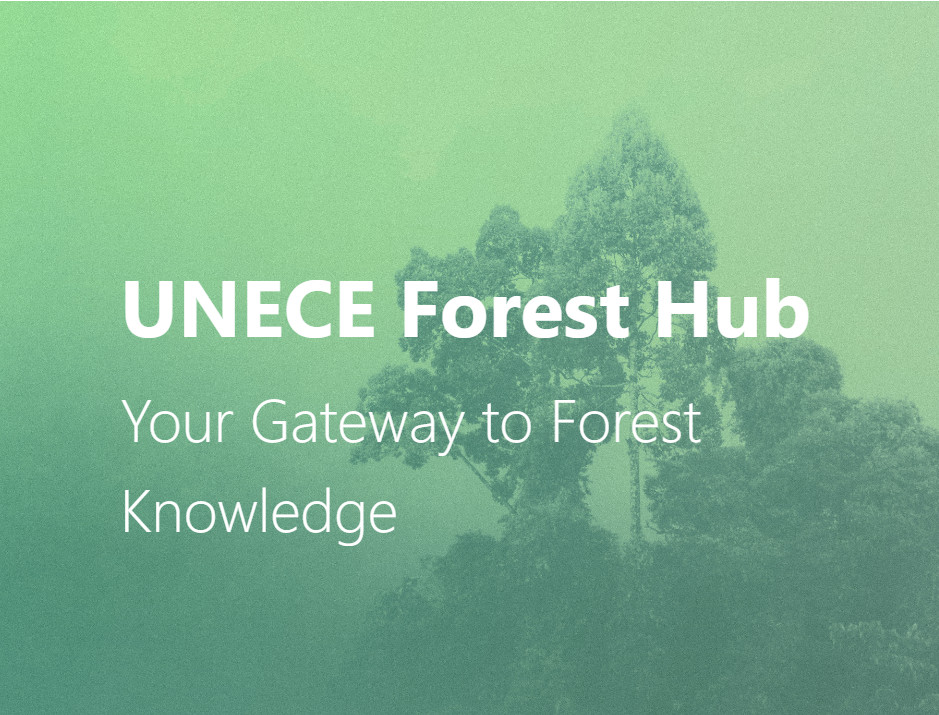
The United Nations Economic Commission for Europe (UNECE) launched its new Forest Hub, an online platform for accessing knowledge and resources on forests and sustainable forest management in the UNECE region.
The Forest Hub integrates key UNECE resources, including the data platform INForest and Forest Information Billboard, providing a single point of entry for accessing a wide range of information, including publications, data, tools, and training materials.
The Hub provides general information about forests and the forest sector in the UNECE region. It offers an overview of recent and planned activities from international organizations and countries, as well as specialized resources to support sustainable forest management practices across the region.
For more information:
https://land.unece.org/forests/
Save the Date
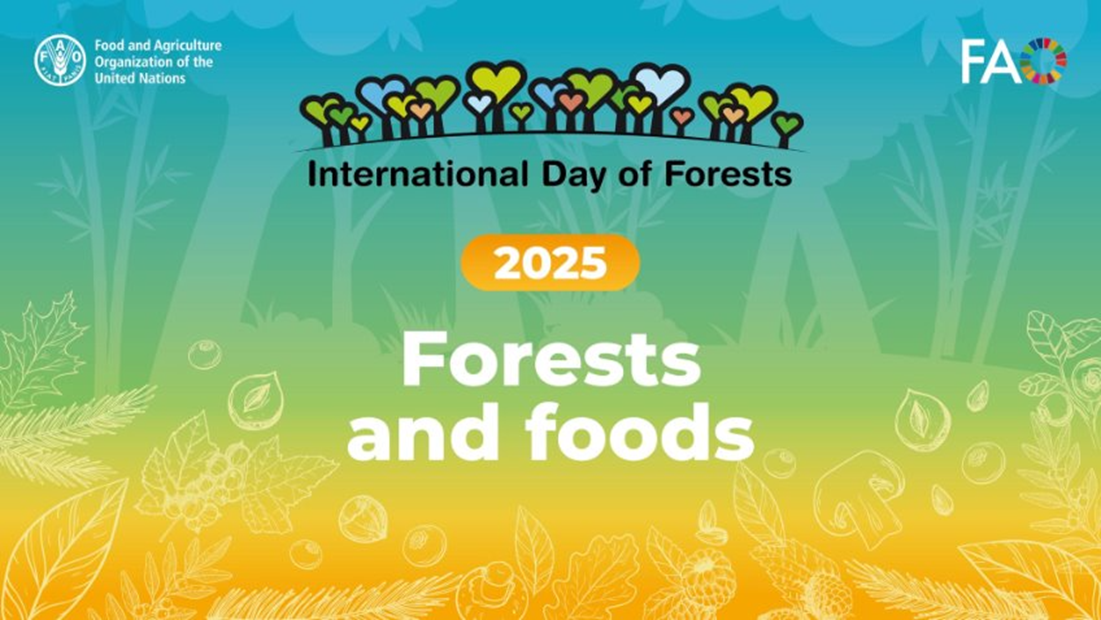
On the 21st of March each year, the International Day of Forests celebrates and raises awareness of the importance of all types of forests. Countries are encouraged to undertake local, national, and international efforts to organize activities involving forests and trees, such as tree planting campaigns. In 2025, "forests and foods" is the theme for the day, celebrating the crucial roles of forests in food security, nutrition, and livelihoods. In addition to providing food, fuel, income, and employment, forests support soil fertility, protect water resources, and offer habitats for biodiversity, including vital pollinators.
For more information: here
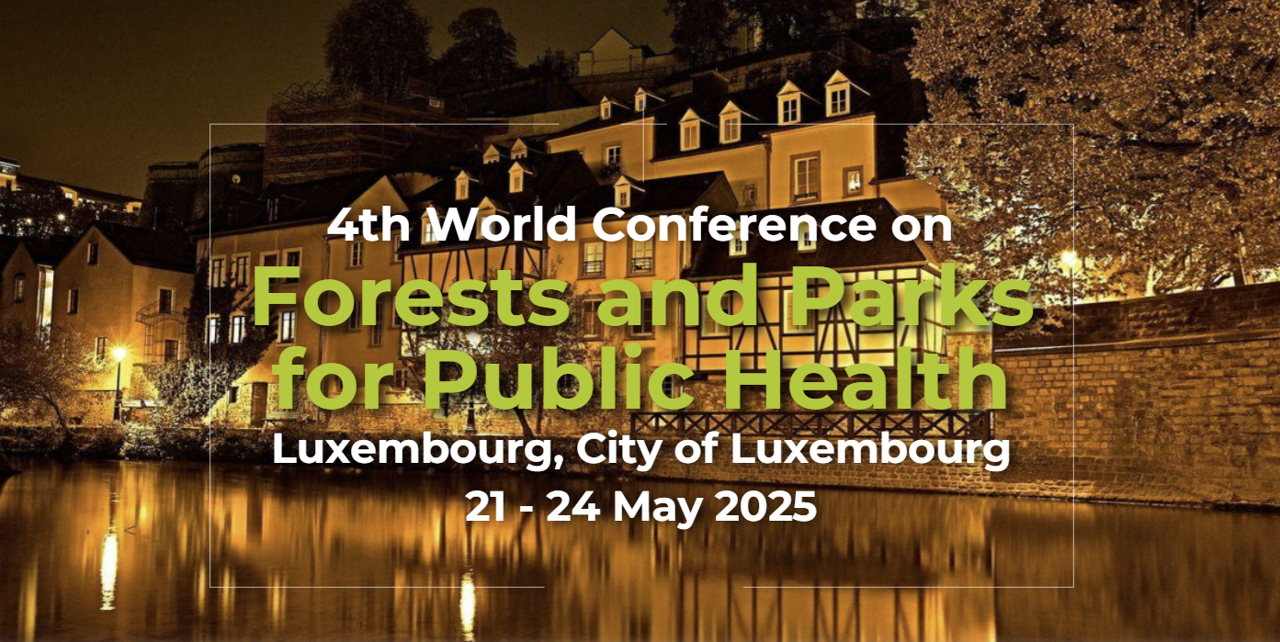
The 4th World Conference on Forests and Parks for Public Health, 21-24 May 2025, Luxembourg, City of Luxembourg, aims to raise awareness of the need for forests, city forests, parks, and other green spaces to be incorporated into International Organizations’ policies and goals, and to National Public Health systems, policies, and practices for a Healthy and Sustainable society. Scientists from all over the world are invited to participate and present their research results and knowledge in this new multidisciplinary area. The conference is supported by IUFRO Research Group 6.06.00 - Forest, trees and human health and wellbeing.
For more information: here
UNECE Forest Section
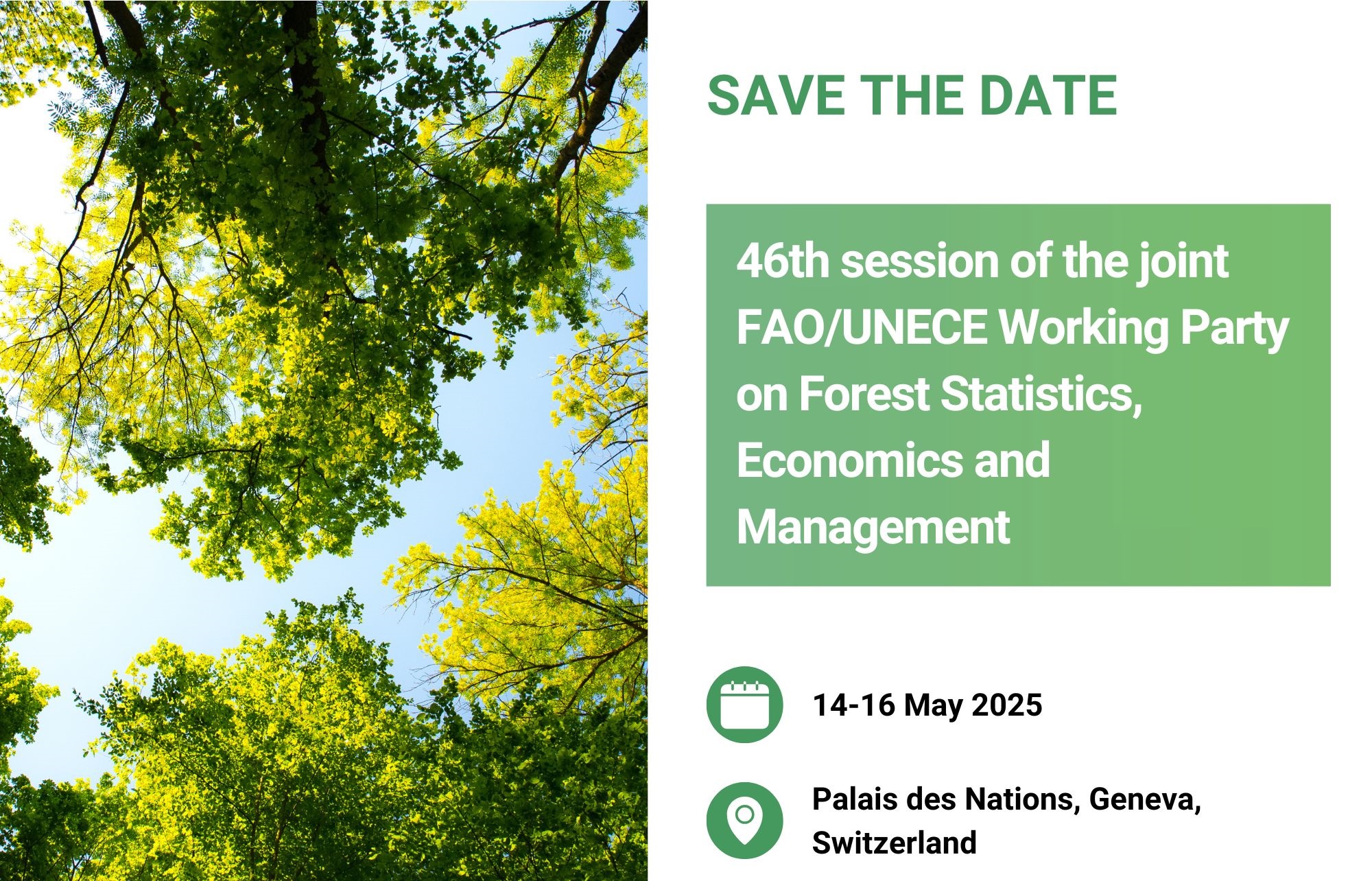
The forty-sixth session of the joint FAO/UNECE Working Party on Forest Statistics, Economics and Management will be held from 14 to 16 May 2025 in Geneva, Switzerland.
For more information: here

The COFFI Member States submitted preliminary national data on forest products production, trade, and consumption in 2024 and a forecast into 2025. The secretariat compiled the data and published them on the website: here.
Countries also provided extensive market insights in their Country Market Statements. These documents provide an overview of the economic and policy trends in 2024 and their impacts on the forest products markets. The secretariat received more than 350 pages of very detailed information and made it available on its website: here.
The secretariat, in close collaboration with global industry experts, prepared the Forest Products Annual Market Review 2024 and published it as an electronic pdf on its website: here.
The market statement of the Committee on Forests and the Forest Industry is a summary of the above and was published as a post-session document on the website of the 82nd session: here.

The COFFI - EFC Joint Session will be held from 20 to 24 October 2025 in Istanbul, Türkiye.
For more information: here

UNECE has produced a new study examining forest reproductive material (FRM) production in the Republic of Moldova. This study, conducted at the request of the Moldovan government, focuses on improving the country's FRM sector to support the National Afforestation and Reforestation Programme (NARP). The study analyzes existing FRM production capacity, identifies challenges such as outdated technology and labor shortages, and benchmarks best practices from other European countries. Key recommendations include centralizing FRM production, modernizing techniques, and securing strong political support for sector development. The study provides a roadmap for improving FRM production in Moldova, ensuring long-term sustainability through comprehensive planning and stakeholder engagement. The information and findings of this study can also be highly beneficial to other countries seeking to develop or improve their own FRM production systems.
For more information: here
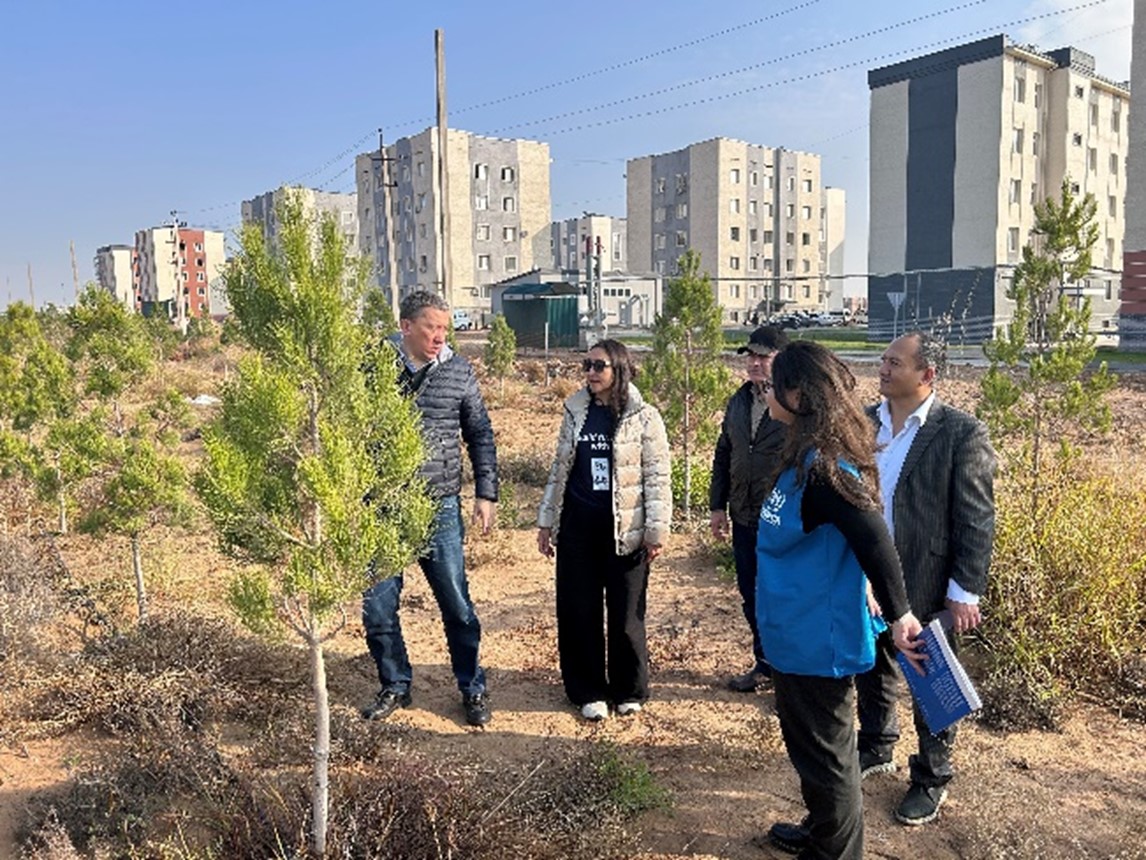
A consultative workshop on master planning for forest restoration and afforestation in Uzbekistan was held on 21-22 November 2024 in Tashkent, Uzbekistan. Organized by the Ministry of Ecology, Environment Protection and Climate Change, UNECE, UNDP, and UNHCR, the workshop aimed to support the Government of Uzbekistan's ambitious Yashil Makon Initiative. The initiative, launched to expand green spaces and enhance environmental quality, will benefit from this project's focus on integrated master planning and innovative financing solutions. The workshop brought together stakeholders and experts to discuss the Master Plan's objectives and gather feedback to ensure a collaborative approach to its implementation. A field visit to the Tashkent and Surkhandarya regions provided valuable insights from ongoing afforestation activities.
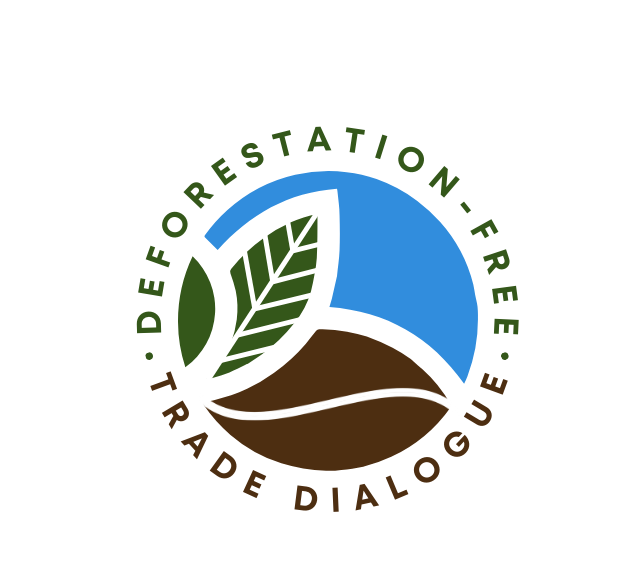
The secretariat organized a Deforestation-Free Trade Dialogue on the first day of the 82nd session of the UNECE Committee on Forests and the Forest Industry (November 2024). The event brought together government officials, industry representatives, civil society organizations, and experts to discuss the critical role of trade in addressing deforestation and forest degradation. The dialogue focused on the increasing demand for deforestation-free sustainable products and the need for robust trade policies to promote responsible sourcing and consumption.
For more information: here
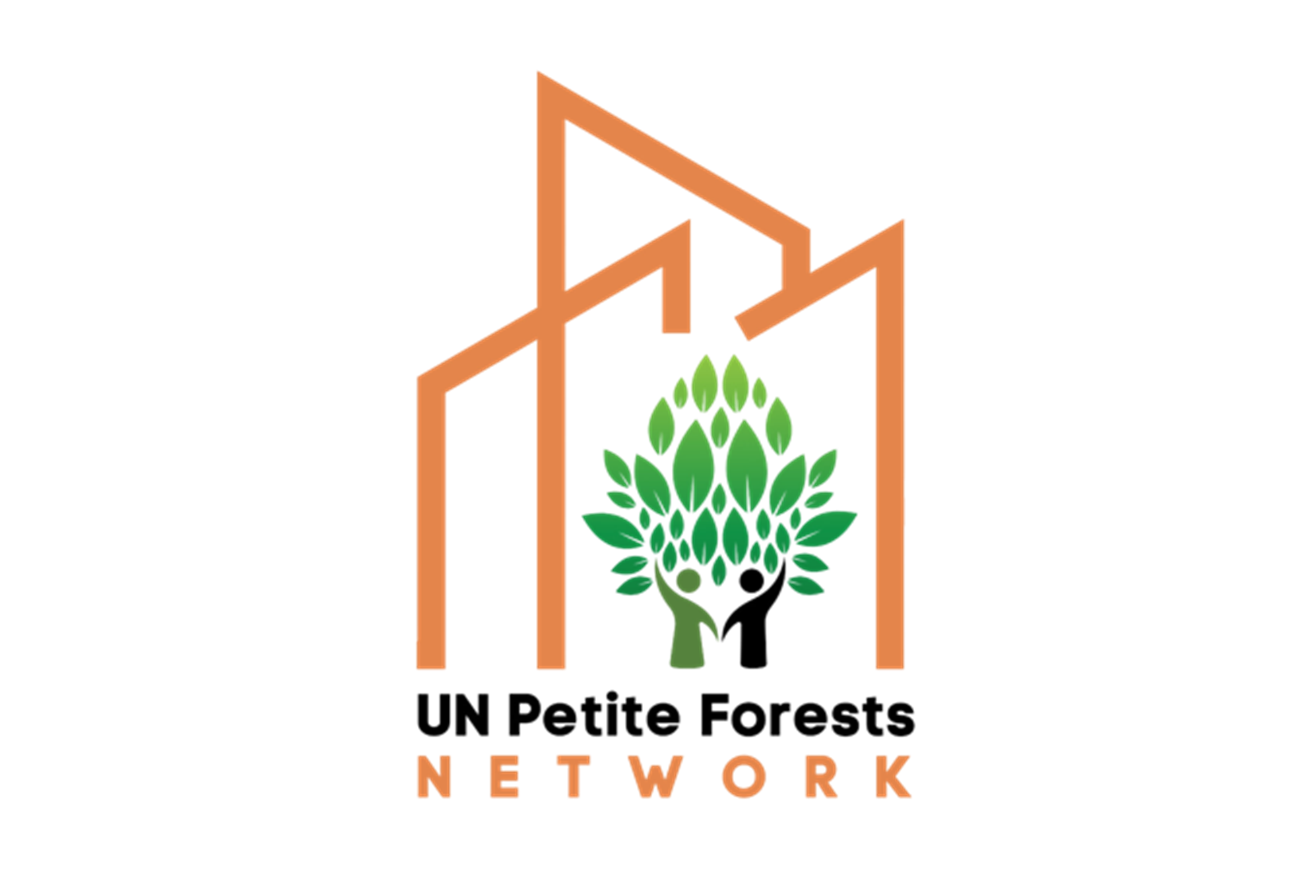
On 28th November 2024, the UN Petite Forests Network held its inaugural meeting, building on the momentum from its launch at the Future Green Cities World Congress. Hosted by UNECE in partnership with Earthwatch Europe, the meeting brought together a global community to explore how petite forests can transform urban landscapes for the benefit of people and the planet. Participants shared success stories, including practical insights from IVN Natuur Educatie and strategies for scaling impact from the Aga Khan Foundation. The session fostered collaboration and identified key priorities for advancing urban petite forests globally.
Together, we are growing greener cities. Get involved with the Network – register now!
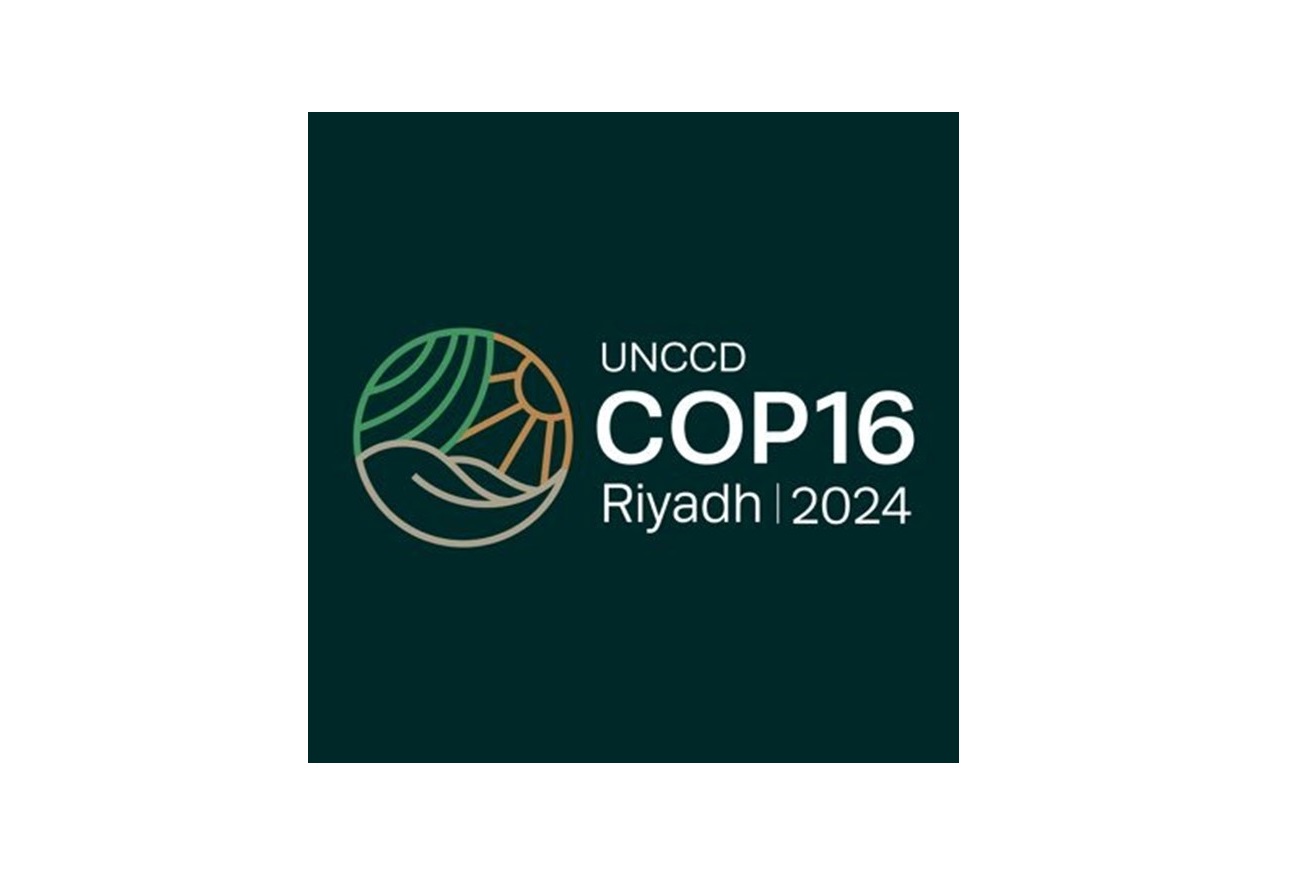
At UNCCD COP-16, UNECE spotlighted urban land restoration in arid regions. Dry Lands, Green Cities: United for Urban Land Restoration, hosted by UNECE and the Trees in Dry Cities Coalition, emphasized policy and finance solutions, with contributions from governments and finance experts. Rethinking Urban Landscapes, co-hosted by UNEP and UNECE, showcased innovative solutions to combat desertification in urban planning. Together, these discussions underscore the transformative potential of urban forestry in drylands, uniting policy, finance, and innovation to build resilient and sustainable cities for future generations.
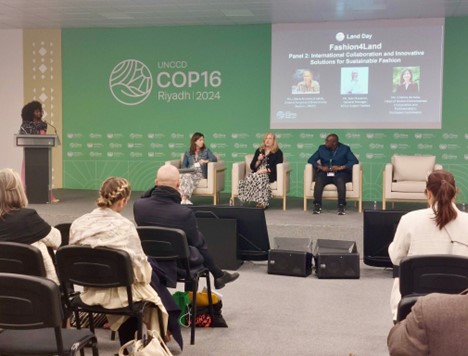
At COP16 in Riyadh, UNECE showcased sustainable fashion alternatives emphasizing land-friendly practices. The event, organized by UNCCD, UNECE, and partners, highlighted the role of regenerative agriculture, agroforestry, and low-impact fibres like wood-based materials in reducing land degradation and water use. UNECE’s Forests4Fashion initiative promotes man-made cellulosic fibres, which require less land, no irrigation, and support deforestation-free production. Experts called for circular economy models, better consumer awareness, and regulatory frameworks to drive sustainable change in fashion, highlighting the critical link between land, fashion, and environmental health.
For more information: here and here
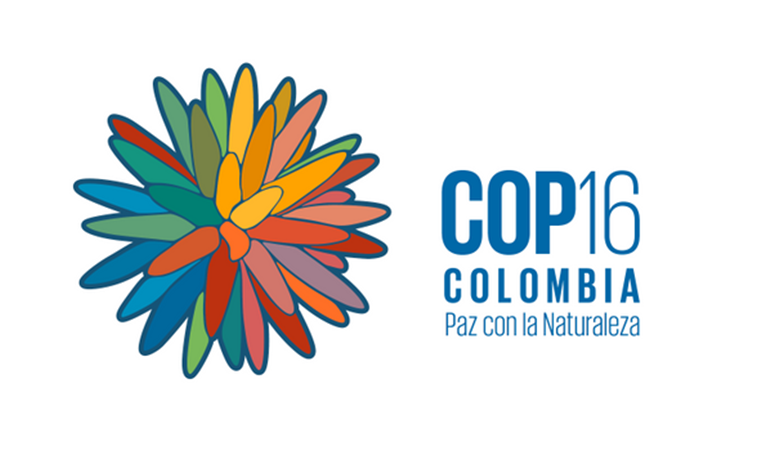
The United Nations Regional Commissions hosted a key side event at CBD COP16 in Cali, Colombia, focused on advancing the implementation of the Kunming-Montreal Global Biodiversity Framework (KM-GBF) at the regional level. The event launched the joint policy brief, Making Peace with Nature: Regional Actions to Mainstream and Invest in Biodiversity, and fostered dialogue on best practices for biodiversity conservation, overcoming challenges, promoting transboundary collaboration, and accelerating action for sustainable natural resource management. The event highlighted the crucial role of regional engagement in shaping a sustainable future for biodiversity.
For more information: here
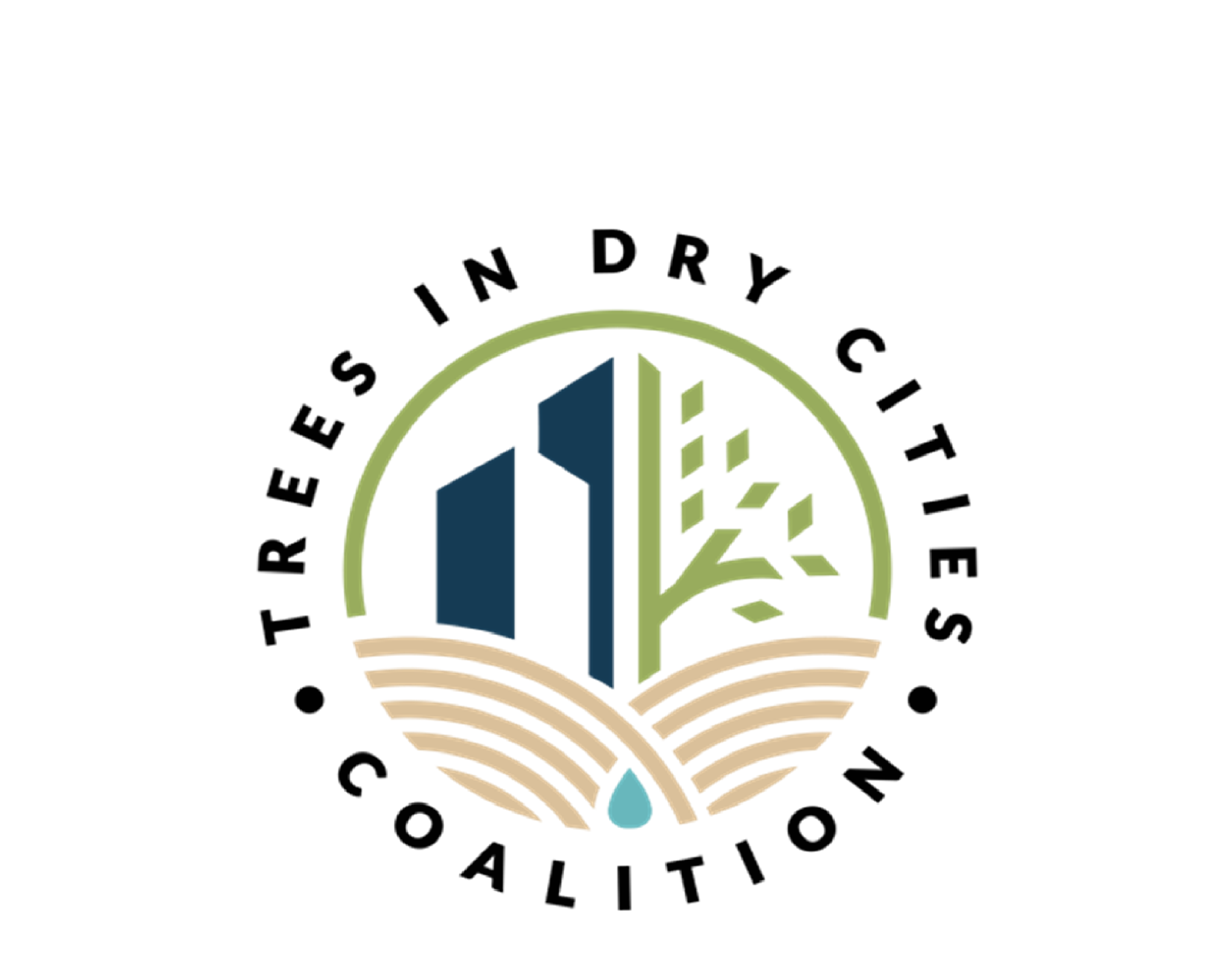
On 20th November 2024, the Trees in Dry Cities Coalition hosted its first webinar, focusing on Drought - Water Accessibility and Availability: Challenges, Successes, and Failures. This engaging session brought together urban forestry experts and cities like Cape Town, Madrid, and Mexico City to share innovative approaches to water management in urban forests. The discussion highlighted real-world solutions, from rainwater harvesting to sustainable greywater use, offering practical insights for addressing water scarcity. Participants exchanged ideas, fostering collaboration to tackle climate-driven challenges in urban forestry. This inspiring event marked the beginning of an annual series. Join us as we continue exploring critical topics and advancing solutions for sustainable urban forestry in drylands. Sign up to join the Coalition!
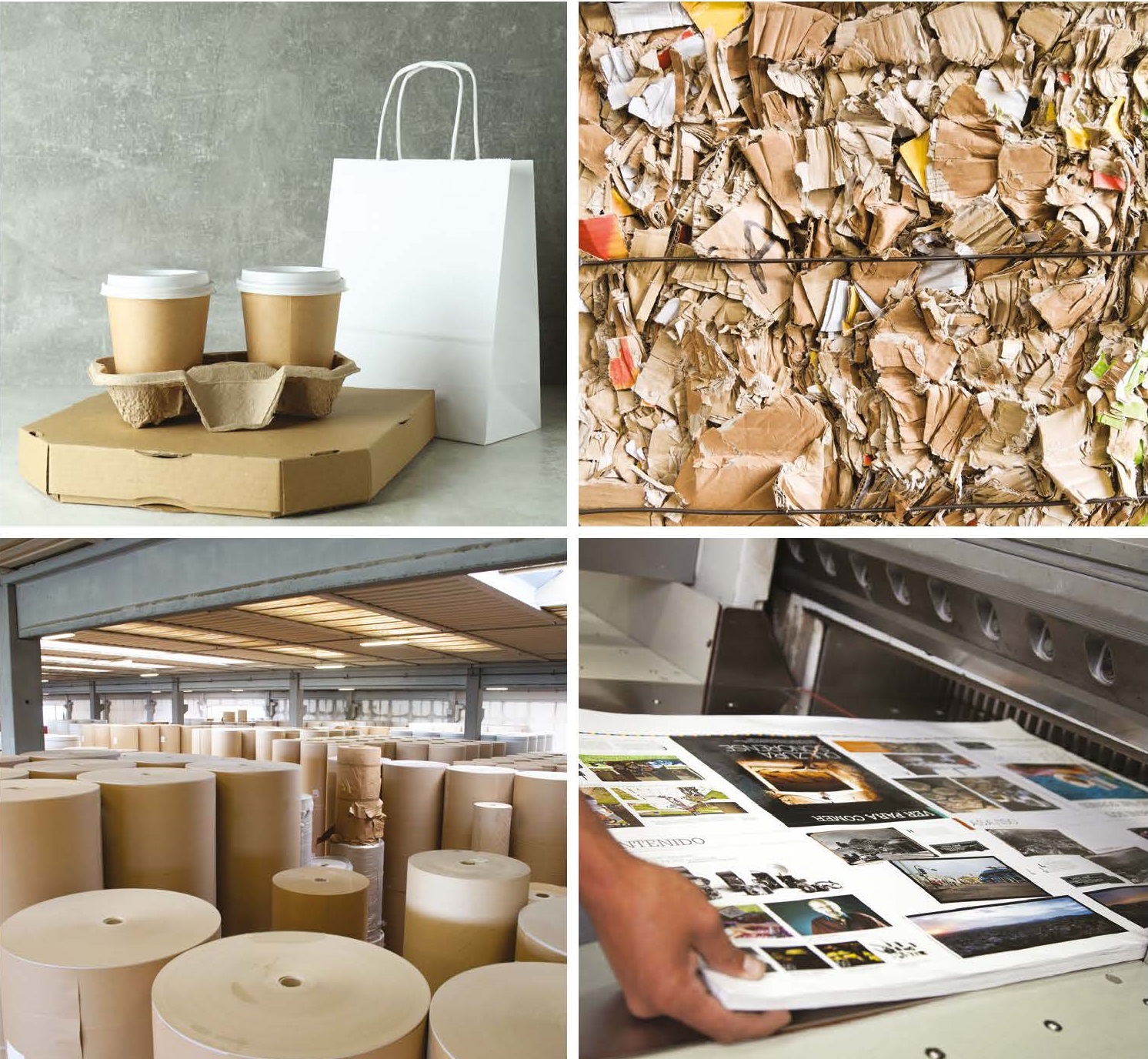
On December 2, 2024, UNECE/FAO, FAO Geneva, and FAO Brussels hosted an online launch of a publication on circularity in the pulp and paper industry. The event stressed collaboration among industry, policymakers, researchers, and civil society to align resource efficiency and economic growth with circular bioeconomy principles. Discussions highlighted the industry's role in advancing the circular economy, featuring innovations in recycling, biorefineries, and resource management, and emphasized policy and market frameworks to support a circular bioeconomy, underscoring the importance of shared efforts to promote sustainable development within the sector.
For more information: here
Publications, Reports...

Forest ecosystems can fulfil the needs and demands of societies (timber products, recreation) while aiding in mitigating the impacts of climate change and supporting biodiversity. According to the 2022 National Forest Inventory, forests in Ireland cover 12% of the land area and are an important carbon stock. Appropriate management of the forest estate to support a range of ecosystem services is required.
This paper reviews the current and projected forest carbon stocks and emissions for Ireland. The study also explores the sensitivities of the forest carbon balance to management practices, silviculture, and afforestation policies.
For more information: here
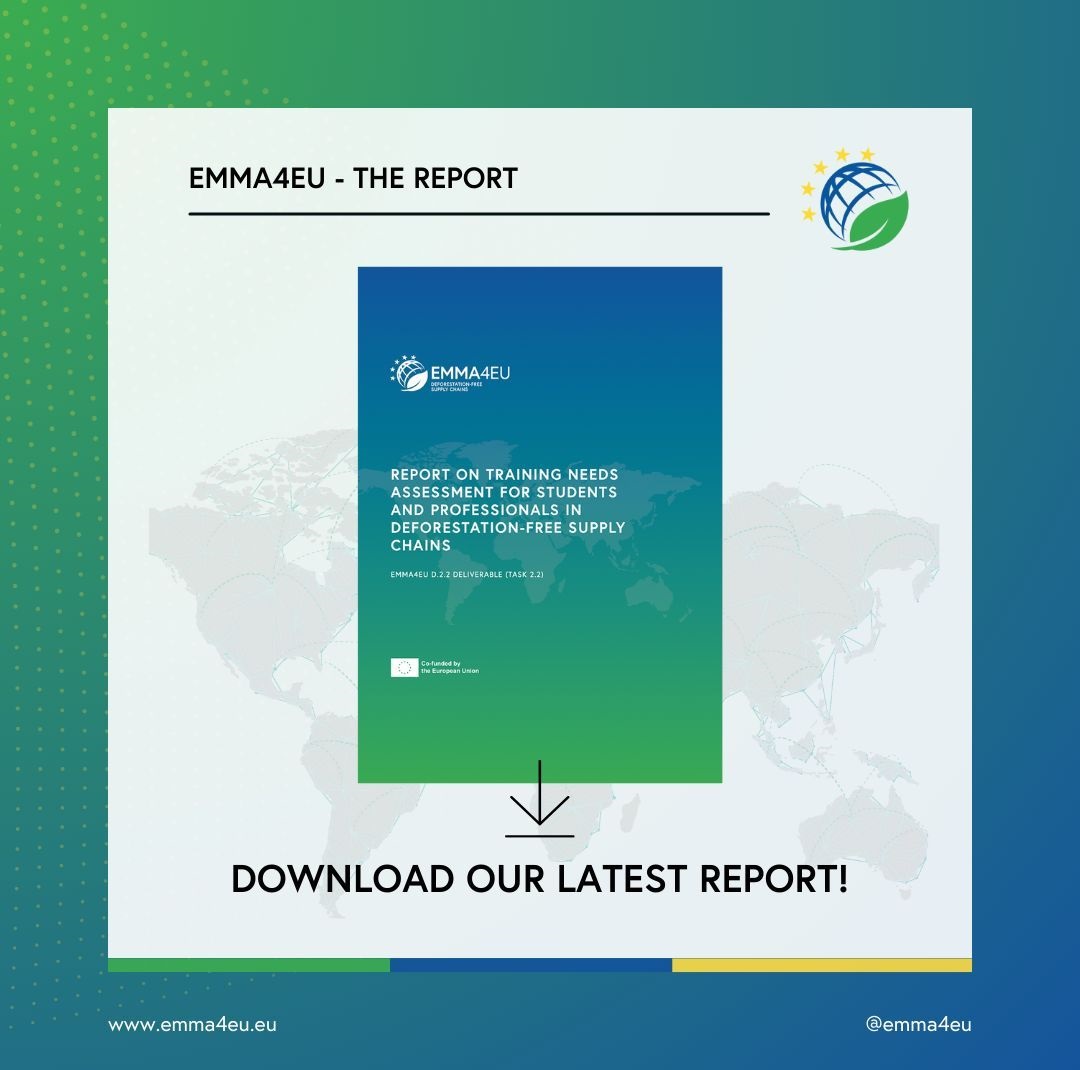
The new Report on Training Needs Assessment for students and professionals in Deforestation-Free Supply Chains reveals essential skills for students and professionals, highlighting current gaps in training programs. Developed by the University of Padua under the EMMA4EU project, this report contains the results of an international survey of 36 different countries around the globe. EMMA4EU – coordinated by Etifor | Valuing Nature - supports the implementation of the European Deforestation-free Products Regulation (EUDR) through innovative training and knowledge sharing. Prepare for the launch of the EMMA4EU tailored training program in 2025, download the report now!
For more information: here

FOREST EUROPE’s Expert Group on Green Jobs has released a groundbreaking report that redefines the future of the forest sector workforce. The revised Indicator 6.5 now expands its scope to include a wider range of forest-related jobs, with a focus on Green Forest Jobs and decent work principles. This ongoing revision aims to better capture the social impact of the forest sector while addressing workforce challenges and aligning with the green economy. The report also includes findings from a test phase in four FOREST EUROPE signatory countries, showcasing the potential for a more inclusive, sustainable approach.
Read the full report to discover how these changes could transform forest management and job quality across Europe.
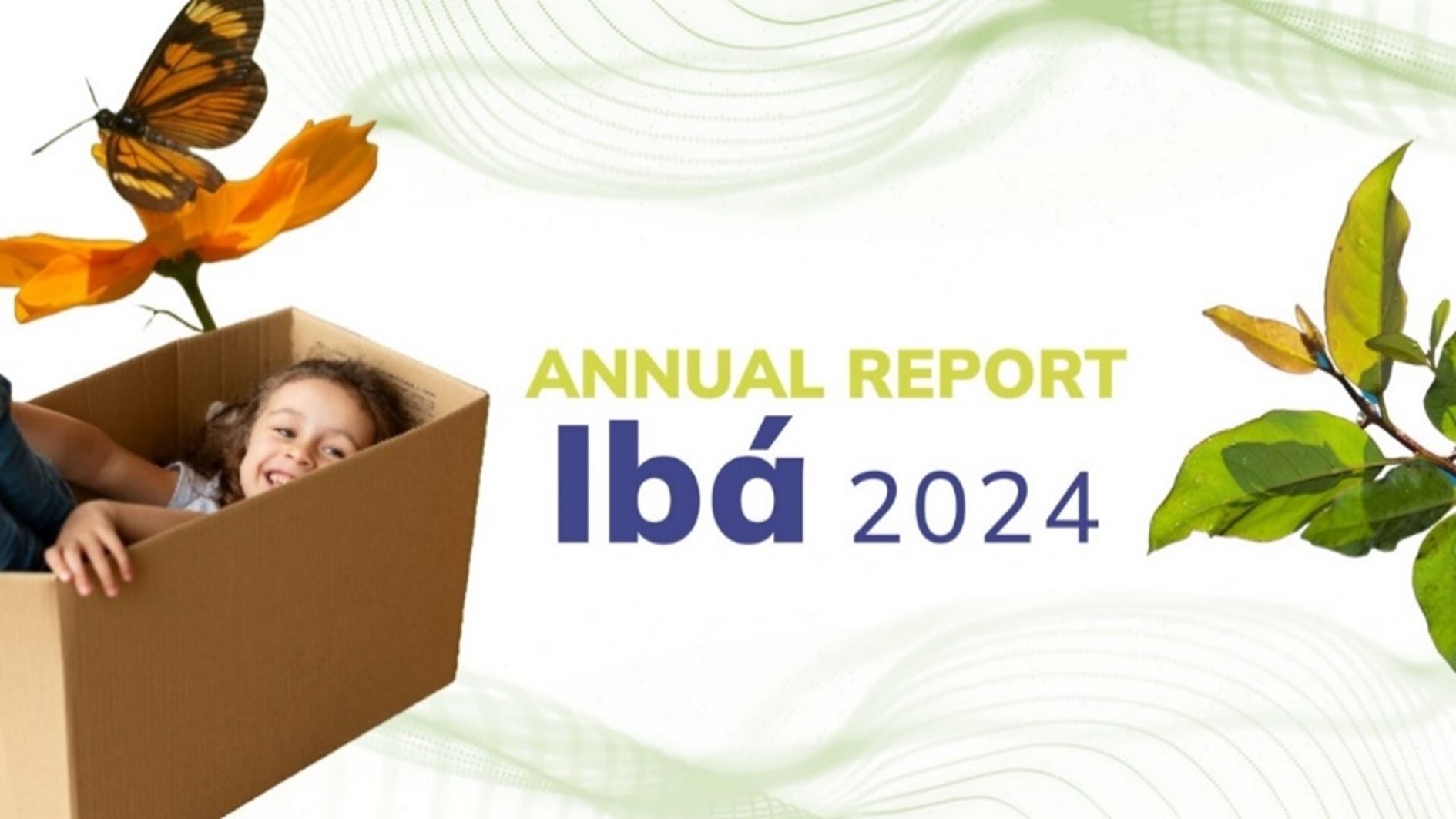
Ibá launched the 2024 edition of its Annual Report, which provides environmental, economic and social data on the cultivated tree industry. The document was highlighted in a report by Estúdio Folha, from Folha de S. Paulo, which shows how the sector plants 1.8 million trees daily. Trees that are planted to produce bioproducts of renewable, recyclable, and, for the most part, biodegradable origin.
The English version is available on the Ibá website: here
Check out the video in English with the main highlights of the report: here

Exciting updates! FOREST EUROPE’s forest-themed comic, designed to inspire young people to explore careers in Green Forest Jobs, now features voiceovers in its interactive digital version. The eBook is also available on Google. This engaging resource highlights both traditional and innovative roles in the sector, combining education with entertainment to spark interest in the future bioeconomy.
Explore the digital version with animations and voiceovers on our website!
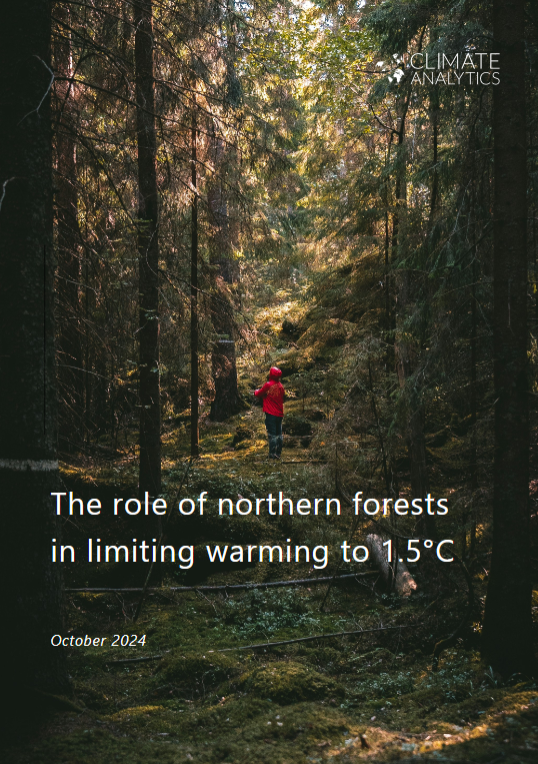
This study’s analysis of 1.5°C-compatible pathways shows that the most important land-based mitigation action for northern forests is to halt deforestation by 2030, especially in primary forests. The models also indicate that afforestation can play a role in expanding the northern forest carbon sink, but this must be carefully balanced with food security and biodiversity concerns. In 1.5ºC aligned pathways, over 90% of the emissions reductions needed by 2050 in northern forest regions come from transitioning away from fossil fuels in the energy system and ending deforestation. However, expanding the land sink could contribute a noteworthy 6% of the reductions needed by 2050. To make this expansion effective, efforts should focus on building resilient forest ecosystems and reversing the negative impacts caused by deforestation and unsustainable forest management.
For more information: here

This guide provides easy-to-understand information on how good forest management practices and well-implemented phytosanitary standards can minimize pest spread and facilitate safe trade. It describes a wide range of phytosanitary concepts and recommended practices in the forest sector, including the International Standards for Phytosanitary Measures. The International Standards provide guidance to countries in meeting their obligations to the International Plant Protection Convention (IPPC), an intergovernmental treaty relating to plant health, and are designed to harmonize phytosanitary measures to facilitate international trade whilst preventing pest introduction and spread. They are crucial for safeguarding forests against the introduction and spread of harmful pests and diseases.
For more information: here

This research targets the role of forests under the international Paris Climate Agreement and the EU Forest Strategy. In line with the latter objectives, EU Member States are expected to encourage forest owners to contribute to international climate goals via national strategic plans and new management measures. How forest owners will respond is not well known. Swedish and Dutch forest owners filled out a forest-climate survey. Dutch forest owners are planning to introduce new tree species, a gradual shift to broadleaved species, and additional water reservoirs in anticipation of increased drought periods. Swedish forest owners prefer earlier thinning and salvaging activities.
For more information: here

The report examines how climate change impacts human mobility in mountainous regions. With evidence from Ecuador, Kyrgyzstan, and Tajikistan, it highlights how communities respond to climate-induced pressures, with strategies ranging from pastoralism to labour migration. It also outlines the gendered dimensions of mobility, emphasizing the role of women in managing households during male outmigration. The study points to the need for more research, policy interventions, and support systems. By integrating mobility into climate adaptation plans, and leveraging Indigenous Peoples' knowledge of modern technologies, the report advocates for more comprehensive disaster risk management and sustainable development pathways in mountain regions
For more information: here
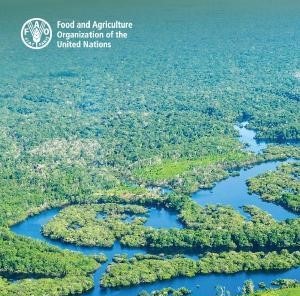
This brief emphasizes that conserving primary forests is essential for meeting global climate and biodiversity targets. In addition to hosting the majority of the world’s terrestrial biodiversity, these forests store the largest proportion of terrestrial carbon stocks. Protecting primary forests has been overlooked in international policy frameworks, and in particular carbon trading mechanisms, which focus on carbon fluxes rather than stocks. Less than five percent of climate finance is used to support forest protection. To remedy this, the paper recognizes innovative public and private financing sources, including mechanisms based on the area of forest conserved and a focus on ecosystem services, which go beyond carbon.
For more information: here

Improving forest carbon projects isn’t just about technology. State-of-the-art sensors and monitoring techniques are important, but so are smarter guidelines and solid methodologies. The EU-funded project INFORMA has laid out recommendations to better integrate forest management practices into carbon certification—while steering clear of pitfalls like overcrediting. The suggestions are presented as part of a factsheet series exploring the mid-term results of the project. Below, you can access this and other INFORMA factsheets:
Developing long-life wood uses to improve carbon storage: Where are we in Europe?

The document, created by BOKU University, examines the outcomes of Payment for Ecosystem Services (PES) programs across Europe. Using data from 108 case studies, expert surveys, and interviews, it analyzes project designs, capital impacts, and barriers to PES adoption. Key findings emphasize diverse approaches, with notable successes in water management and community benefits. However, challenges such as administrative complexity and financial constraints persist. The study offers actionable insights to enhance the sustainability of Forest Ecosystem Services (FES) and improve the design and implementation of PES initiatives.
For more information: here

The study proposes an innovative method to inventory the construction wood use intensity: the ratio of apparent national consumption of wood for construction (in m3) to the useful floor area of new dwellings (in m2) and to identify international policy measures. Construction wood is built up of both engineered wood products (e.g. laminated beam) and panelboards (OSB); related data is extractable via FAOSTAT and UN Comtrade. The ratio ranges from 0.01 to 0.32 m3/m2 across Europe. An extra harvested wood product (HWP) category in the IPCC Guidelines is recommended for construction wood with a longer lifespan than the current HWP categories.
For more information: here

The "Iran Nature" journal, published by the Research Institute of Forests and Rangelands, features a series of "Notes and Points" articles dedicated to climate change. This collection brings together articles from the journal's initial 44 issues, providing a valuable resource for researchers and policymakers. While interconnected, each article within the collection can be considered a standalone piece, offering insights into various aspects of climate change. To enhance accessibility, the collection includes an English preface and table of contents.
For more information: here
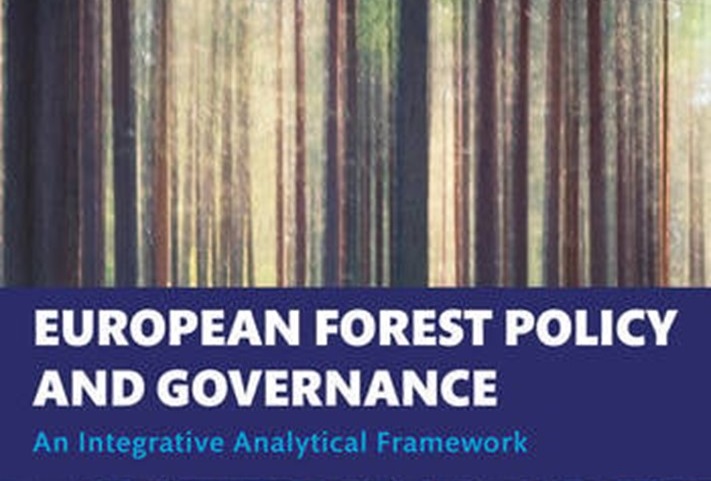
The recently published European Forest Policy and Governance offers a cross-cutting exploration of forest policy processes across Europe, providing a fresh perspective on the frameworks and analytical approaches shaping this field of work. Set against the backdrop of a rapidly changing world, this book addresses the urgent need to understand how forest policymaking adapts to and influences these shifts. Through a series of case studies, it delves into several socially relevant topics for the forest-based sector today. The book illustrates these pressing issues, offering insights into both proposed and established forest-relevant policies.
For more information: here

The WBCSD’s Forest Solutions Group (FSG) announced its new Forest and Nature Metrics tool during CBD COP16. The tool provides clarity on and helps prioritize the most relevant and practical nature metrics for the forest sector. Rapid business action is essential to address the ongoing loss of biodiversity but the complexity of nature and little consensus on metrics are delaying progress.
The FSG developed this tool to support business and drive progress, in alignment with FSG’s Forest Sector Nature Positive Roadmap, and key disclosure frameworks (e.g. CDP, TNFD, SBTN).
Learn more and request access to the tool here
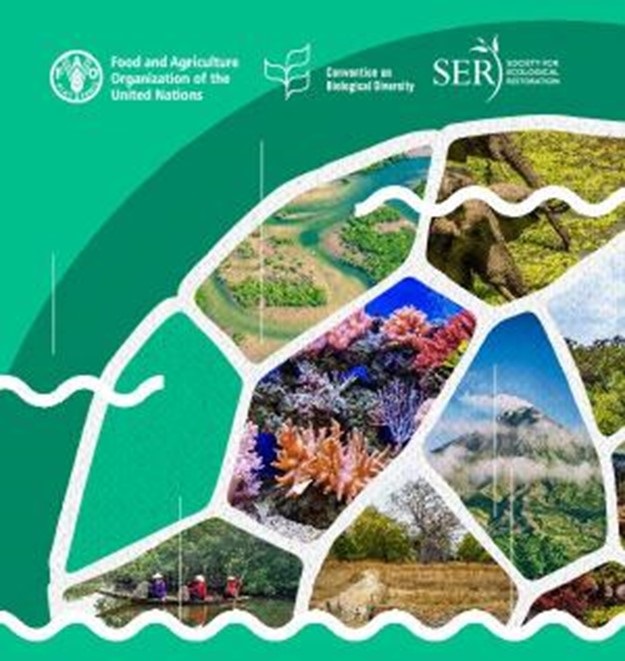
Prepared by the Food and Agriculture Organization of the United Nations (FAO), the secretariat of the Convention on Biological Diversity, and the Society for Ecological Restoration, this comprehensive resource guide helps countries implement Target 2 of the Kunming-Montreal Global Biodiversity Framework. It offers essential guidance, practical recommendations, and background information to maximize the impact of restoration efforts across various ecosystems. Target 2 calls for at least 30 percent of degraded terrestrial, inland water, coastal, and marine ecosystems to be under restoration by 2030, and is one of 23 global targets that the Framework sets out for urgent action over the decade to 2030.
For more information: here
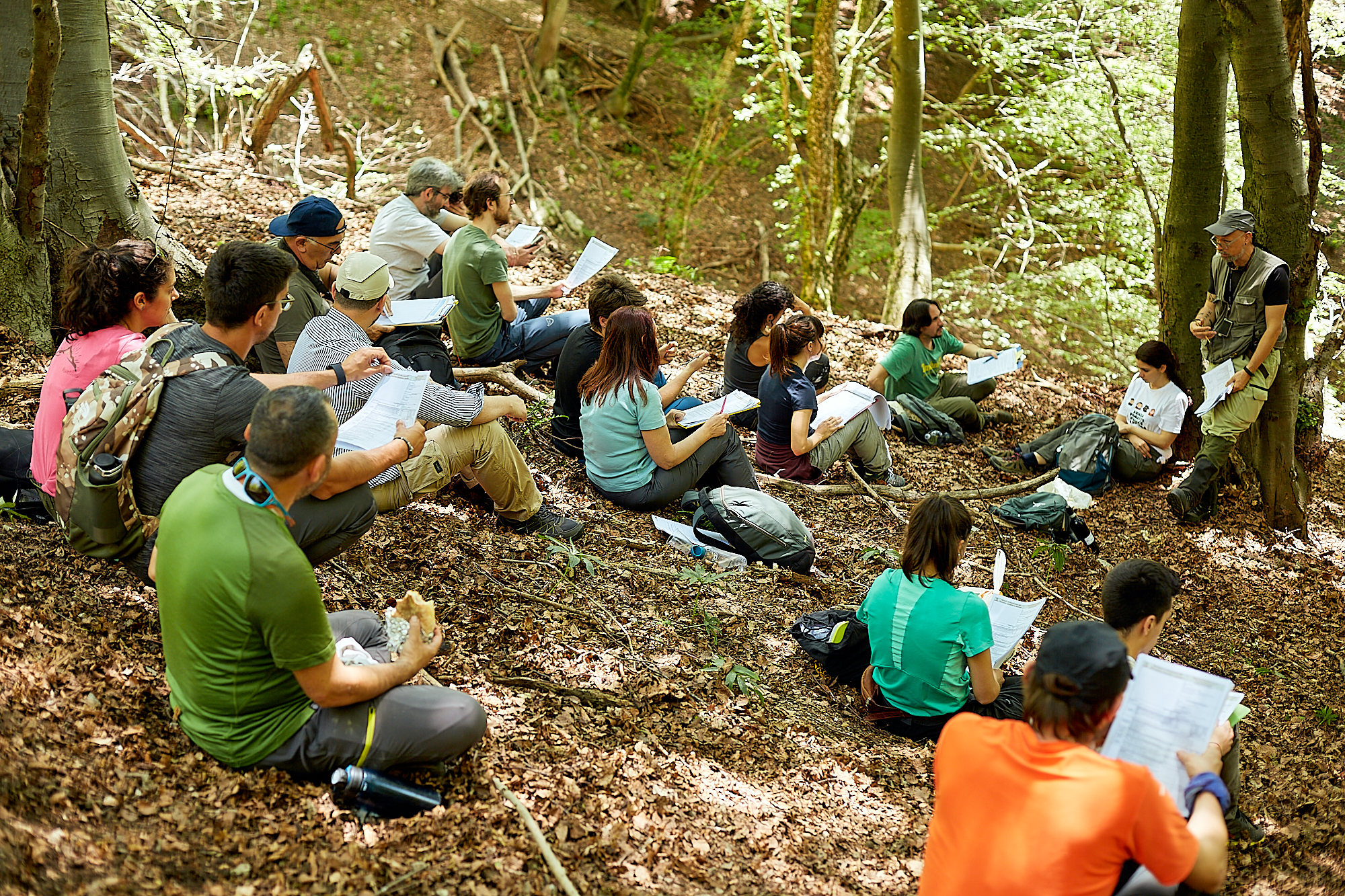
The toolkit, developed by the University of Padua and Etifor | Valuing Nature, is a practical tool to support forest owners and managers in establishing new forest associations and to provide improvement suggestions for existing ones. Using a 10-step method, it guides the creation, management, and sustainable growth of forest associations in Italy. The LIFE ClimatePositive project, coordinated by Etifor and co-funded by the European Union, aims to promote forest associations' efforts to enhance responsible and sustainable forest management in Italy while facilitating access to the markets of carbon and ecosystem services.
For more information: here
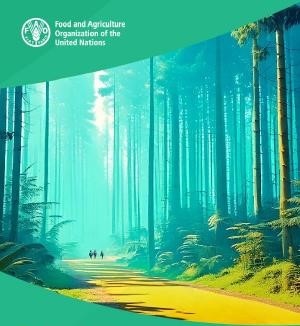
This paper provides a comprehensive framework for addressing the challenge of “non-permanence”— the risk that emission reductions from forests may be reversed due to events such as deforestation, fires, or pest outbreaks. Non-permanence has become a key consideration in climate strategies, especially as countries intensify commitments to reducing emissions. For forest-based mitigation to be reliable, carbon storage must remain stable and resilient over the long term to avoid undermining mitigation goals. This paper offers actionable strategies for carbon crediting programmes to manage reversal risks.
For more information: here

Explore Timber Exchange's latest Global Lumber Price Barometer to gain critical insights into the evolving dynamics of the global lumber market. This survey captures the perspectives of industry professionals on expected global price trends for the coming months, reflecting the shifting landscape of supply and demand. The article offers valuable context on the factors influencing these expectations, such as raw material costs, inventory levels, and market conditions. The full analysis is available on our Market Data Hub.
For more information: here

Over the last two decades, consumers have grown more aware of the environmental and social impacts of commodity production. Many companies have started to address those concerns by adopting codes of conduct or making public commitments to improve their business and sourcing practices. Some countries have complemented this voluntary approach with regulatory frameworks to strengthen and accelerate changes in business practices and ensure positive outcomes at scale. Obligations for due diligence, including rules on transparency and disclosure, have been imposed on supply chain actors. There has been a special focus on the risk of deforestation associated with the production of specific agricultural commodities that are traded internationally.
For more information: here
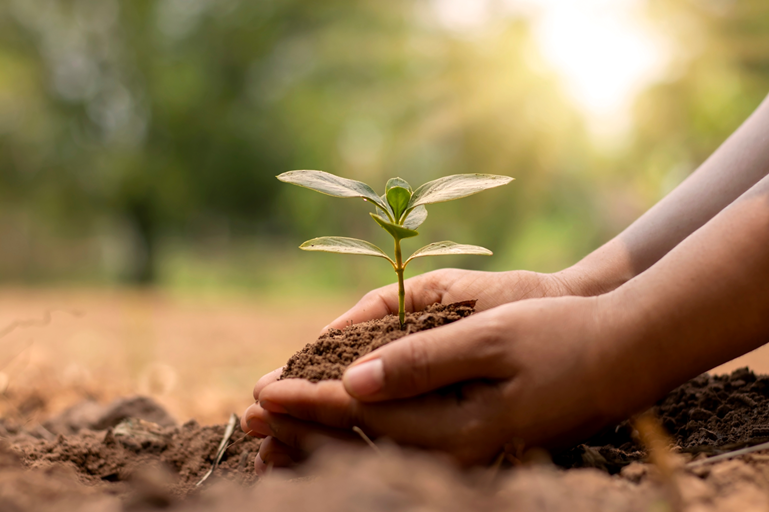
EFI’s new Policy Brief offers concrete guidelines to decision-makers on using Carbon Farming practices to enhance carbon sequestration in forests and agricultural soils to make land carbon sinks stronger. Reaching the EU commitment to climate neutrality by 2050 requires a drastic reduction in greenhouse gas emissions from its economy, as well as the removal and storage of unavoidable emissions from the atmosphere. Forests not only occupy almost 40% of its land area but also provide a natural solution to remove atmospheric carbon dioxide through the process of photosynthesis. Carbon removal benefits also include more biodiversity, increased climate resilience, and additional income for land managers.
For more information: here
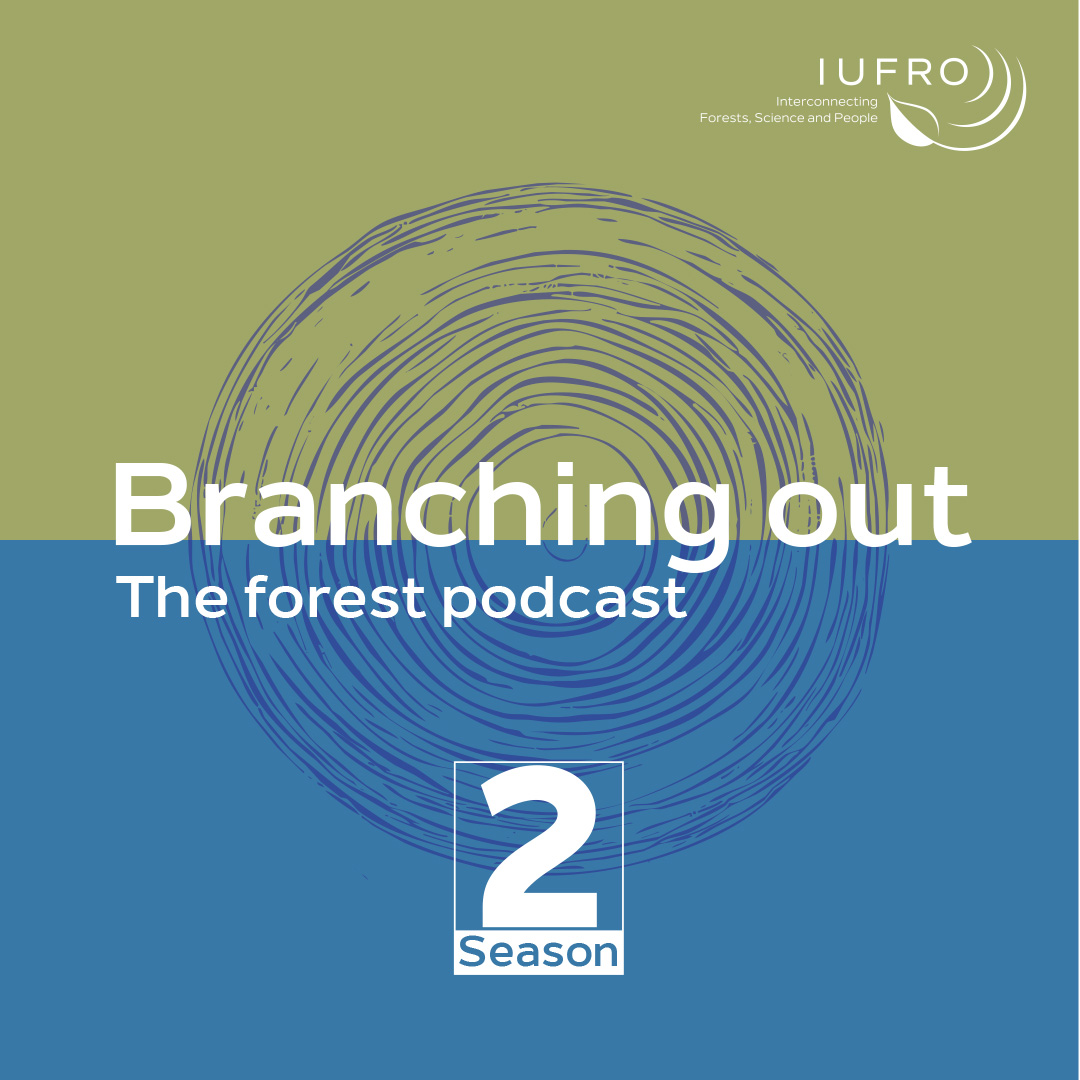
The new season of Branching Out: the Forest Podcast explores IUFRO’s nine Divisions. The first episode discusses formative stories and dispelling misconceptions about silviculture. The chat features Division 1, Silviculture, with its two new Co-Coordinators: Pil Sun Park from Seoul National University, Republic of Korea, and Teresa De Jesus Fidalgo Fonseca from the University of Trás-os-Montes e Alto Douro, Portugal. The conversation touches upon the CC's personal experiences, participation in the Division's work, current scientific findings, and upcoming projects and conferences. The second episode of the podcast, released on 16th January, examines the intersection of physiology and genetics. The podcast is available on all major podcast platforms.
For more information: here
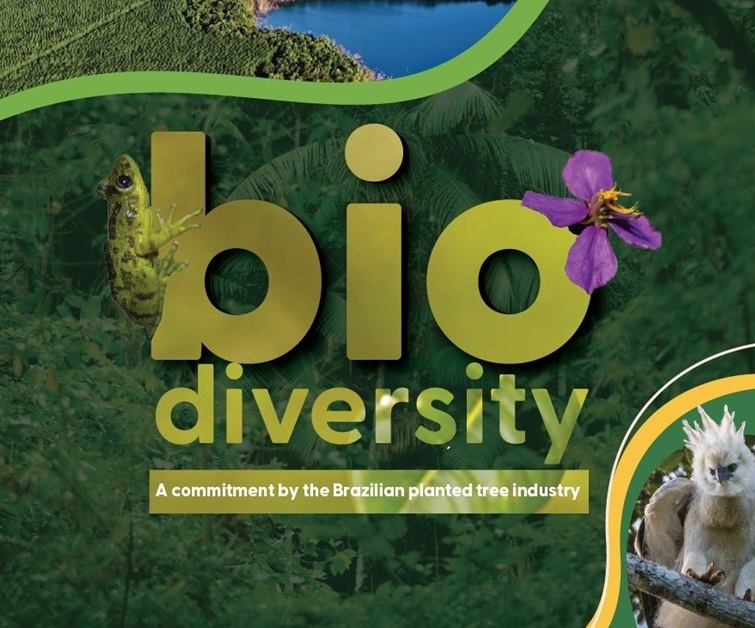
During the Biodiversity COP, in Cali, Colombia, Ibá launched the Biodiversity Book with cases from companies in the cultivated tree sector, highlighting contributions to the Goals of the Kunming-Montreal Global Biodiversity Framework. The material was one of the topics of the side event supported by the association.
The Biodiversity Book is available on the Ibá website: here
Forest community

After the earthquakes that occurred in Türkiye on February 6, 2023, and caused destruction in 11 provinces, the process that started with the construction of institution buildings from wood under the leadership of the General Directorate of Forestry, a comprehensive and intensive study is carried out with the participation of Universities, Municipalities, Private Companies, Non-Governmental Organizations and many more to spread wooden construction throughout the country. Black Pine, Red Pine and Scots Pine tree species with C35 strength class were used in the structures. Strength tests were carried out and certified in other species and classes.
For more information: here

Discover the latest updates from the OptFORESTS project in its final newsletter of the year. At the 2024 annual meeting in Prague, over 60 experts explored genetics, climate change adaptation, sustainable forest management, and key steps to strengthen forests' adaptability to climate change. Highlights included successful collaborations at Horizon Europe events, progress in seed collection for climate resilience, and growing international partnerships through workshops and working groups. OptFORESTS is leading efforts for the sustainable use and protection of forest genetic resources. Stay informed about the latest progress and initiatives shaping the future of forest management. Sign up for the project bulletin here.
For more information: here
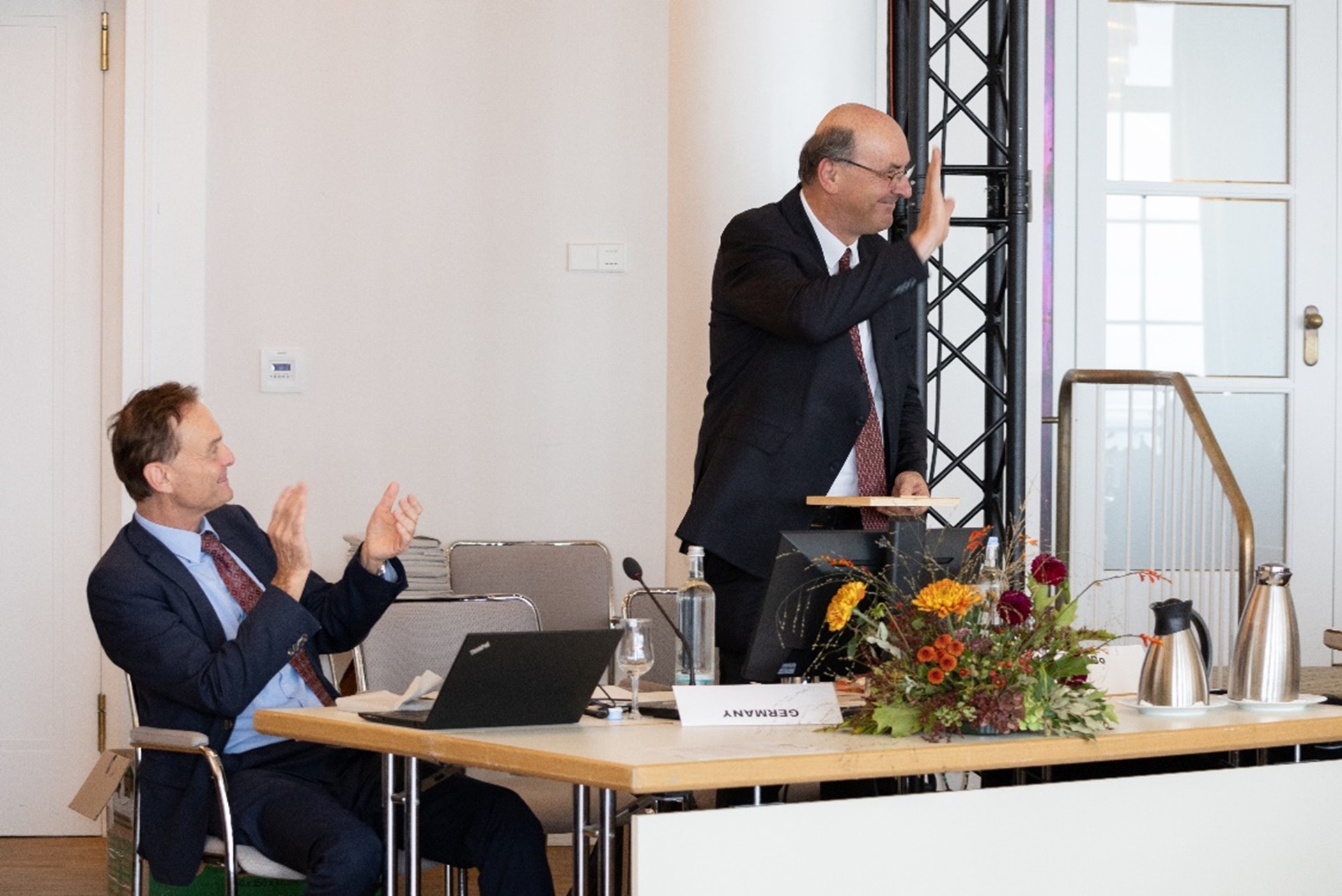
As the Liaison Unit Bonn's journey ends, we extend our heartfelt thanks for four outstanding years. Despite challenges like COVID-19, we achieved significant success in pan-European forest policy. A key accomplishment was the signing of the Bonn Ministerial Documents by 34 signatories and the European Commission, advancing Sustainable Forest Management (details on the 9th Ministerial Conference here). This achievement reflects the commitment and support of the FOREST EUROPE members. As we transition to Sweden, we bid farewell with gratitude and the conviction that FOREST EUROPE remains a trusted leader in forest policy. Special thanks to Germany, led by Minister Cem Özdemir, the LUBO team, as well as the European Forest Institute team for their exceptional contributions.
Visit our website for updates!

“Cooperation is key to our success,” says Peter Kullgren, Sweden’s Minister for Rural Affairs, ahead of Sweden’s upcoming Chairmanship of FOREST EUROPE. Building on the foundation laid by Germany, Sweden looks forward to working with Germany, Albania, the United Kingdom, and all signatories to advance shared goals. Sweden’s two key priorities are: ensuring FOREST EUROPE’s stability as a high-level, voluntary pan-European process, and continuing to advance Sustainable Forest Management, keeping evolving criteria and indicators at the forefront. Sweden has established the Liaison Unit Sweden (LUS), managed by the Swedish Forest Agency, with Ms. Ebba Henning Planck as Head.
For more information: here

On December 10, 2024, PEFC invited stakeholders globally to nominate candidates for the new PEFC Project Certification Task Force.
This new, temporary task force will be responsible for revising the requirements of PEFC chain of custody certification for specified projects, such as construction projects.
For more information: here

The Ecopatrol Service, which provides protection, prevention, and suppression of violations, as well as fire safety in the state forests and specially protected areas of the Republic of Armenia, officially launched its activities in the Syunik region. Since the beginning of 2024, the necessary resource investments, and purchases for the Regional Department have been ongoing including special technical means, appropriately qualified personnel, and buildings. The mission of the units operating 24/7 is the reduction and neutralization of illegal activities, the protection of forest ecosystems, and the mitigation of sector risks. The introduction of this unprecedented format of conservation is a great achievement for the region.
For more information: here

Learn more about the latest developments at the the Integrity Council for the Voluntary Carbon Market and the fate of its approved three methodologies for issuing high integrity carbon credits for reducing emissions from deforestation and forest degradation in developing countries (REDD+):
- (ART) The REDD+ Environmental Excellence Standard (TREES) v2.0, TREES Crediting Level
- (VCS) VM0048 Reducing Emissions from Deforestation and Forest Degradation v1.0
- (VCS) Jurisdictional and Nested REDD+ (JNR) Framework v4.1
Discover why the use of these methodologies which were due to start issuing soon REDD+ credits and expected to be labelled with the CCP label from early 2025, was delayed.
For more information: Dr. Prachi Ugle
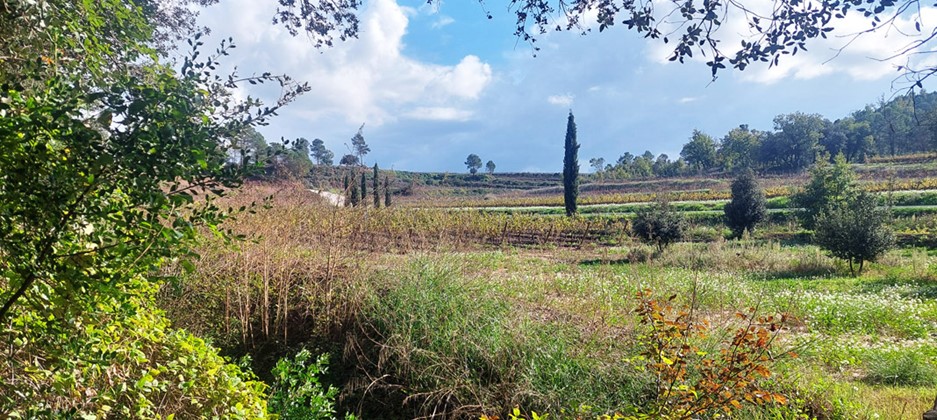
The EU-funded ResAlliance project shares 121 innovative practices to strengthen the resilience of the Mediterranean landscape to threats such as desertification, drought, and fire. The solutions, obtained through collaboration with agricultural and forestry professionals, are available in accessible documents, covering key areas such as finance, governance, management, and technology. This effort aims to provide landowners and policymakers with effective tools to improve sustainability and resilience in Mediterranean ecosystems, fostering collaborative action at the regional level.
For more information: here
On October 8-9, 2024, partners gathered in Cuenca, Spain, for the kick-off meeting of the WOOD4LIFE project. Over the next four years, WOOD4LIFE will engage with key actors in Spain and Italy to test new forest management practices and aggregative forms to enhance connections with the timber and construction industries and to create business models that ensure forests play their critical role in a low-carbon, circular future. Etifor, highly involved in the development of the project, will gather its experience in supply chain analysis and business model development to foster opportunities for forest managers and holders to carry out sustainable management. The consortium includes both public and private actors, as well as research centers across Spain and Italy working together to make European forests' value chains stronger and more resilient.
For more information: here
Past Events
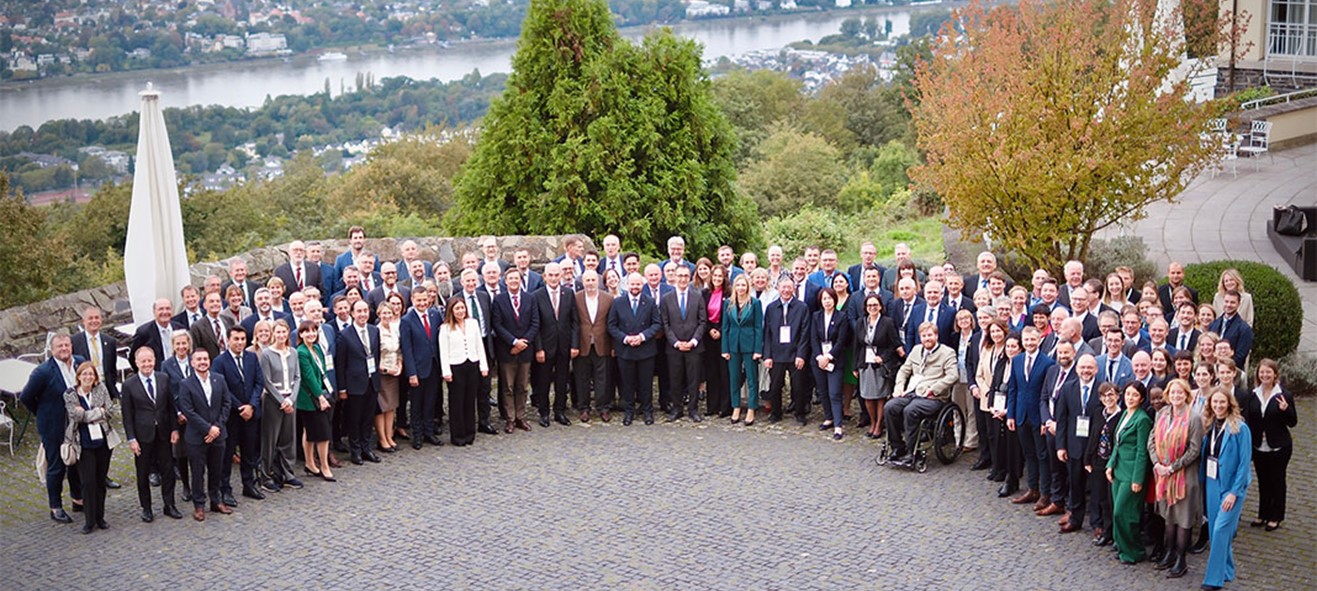
The 9th FOREST EUROPE Ministerial Conference, held in Bonn in October 2024, reaffirmed Europe's commitment to sustainable forest management and the conservation of forest genetic resources. Ministers highlighted progress on the Forest Genetic Resources Strategy for Europe and the importance of improving the resilience and adaptability of European forests. The need to strengthen training and tools for forest managers and the importance of genetic diversity in the adaptation of forests to climate change was underlined. The European Forest Genetic Resources Programme (EUFORGEN) will continue to lead these efforts from 2025 onwards.
For more information: here
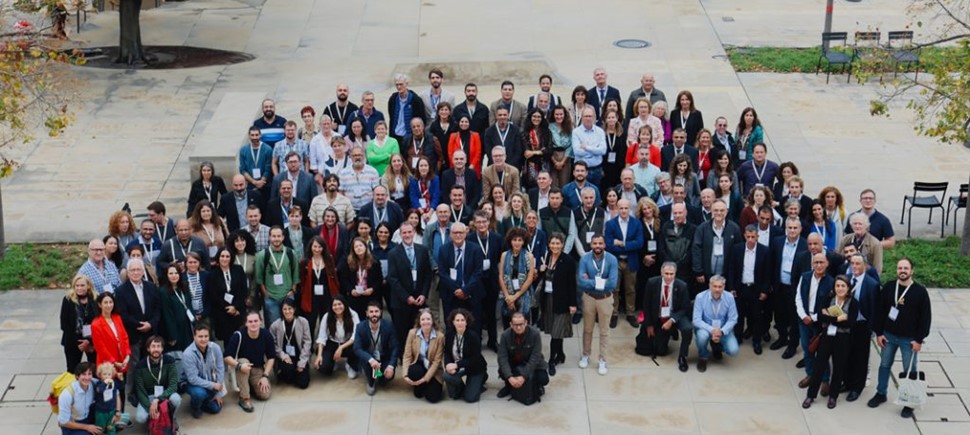
From 4 to 7 November 2024, Barcelona hosted the 8th Mediterranean Forest Week, where experts discussed solutions to the growing vulnerability of Mediterranean forests. Participants addressed issues such as the restoration of degraded ecosystems, adaptation to climate change, and the promotion of greener cities. The sessions highlighted the need for inter-regional cooperation and innovative strategies to manage forests sustainably. Field visits and side events enriched the meeting, which concluded with a proposal for a Mediterranean Forest Initiative to strengthen collaboration in the region.
For more information: here
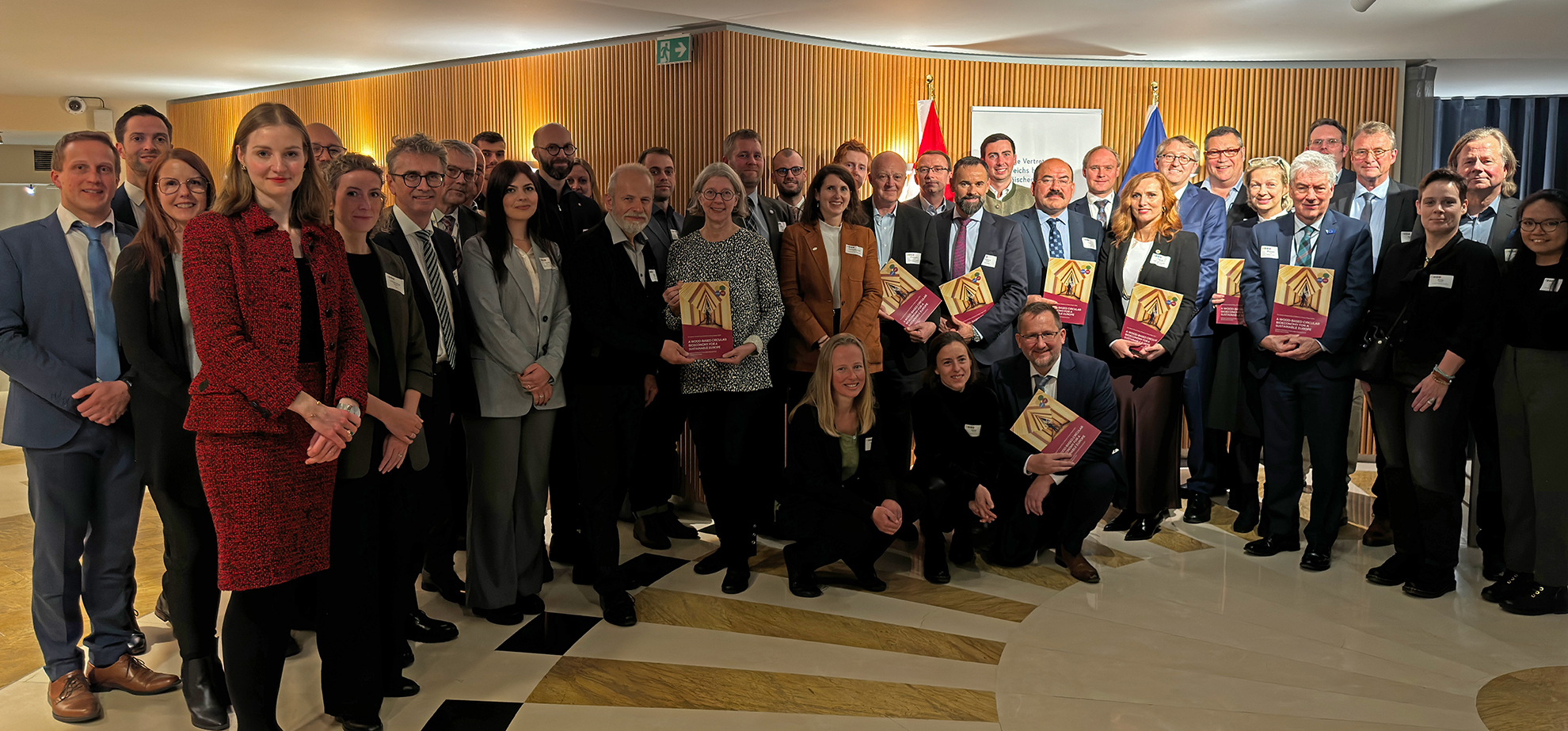
On November 6, 2024, the wood policy platform WoodPoP, which is supported by 25 European countries, adopted a policy paper entitled “A Wood-Based Circular Bioeconomy for a Sustainable Europe”. It contains a joint commitment to an economically valuable, ecologically sensitive, and socially responsible wood policy in Europe, which is a crucial piece in the mosaic for achieving climate targets. WoodPoP is a country-driven initiative that reunites all relevant public and private stakeholders along the wood-based value chain, bringing together politicians and administrators as well as scientists and researchers around the same table. The WoodPoP Secretariat is hosted by IUFRO.
For more information: here
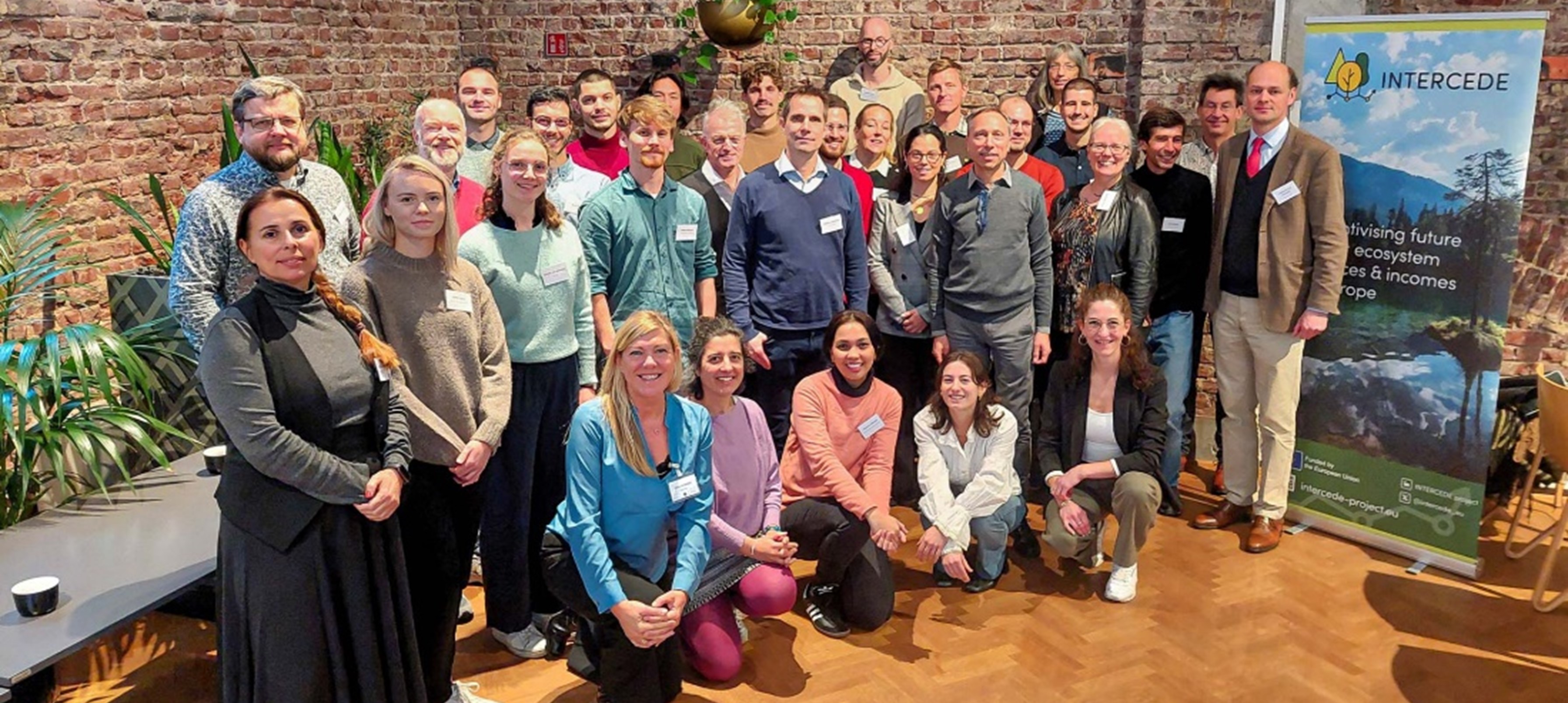
The Horizon Europe INTERCEDE project held its first Transdisciplinary Forum on 13-14 November in Brussels, bringing together experts and stakeholders to explore market-based incentives (MBI) that transform forest ecosystem services (FES) into sustainable solutions. Representatives of forest owners, policymakers, and companies participated in workshops, debates, and practical activities to design innovative tools such as payments for environmental services (PES). Inspiring presentations highlighted the potential of innovation and sustainable forest management. With this collaborative start, INTERCEDE is moving towards solutions that connect forest science, policy, and practice in Europe.
For more information: here
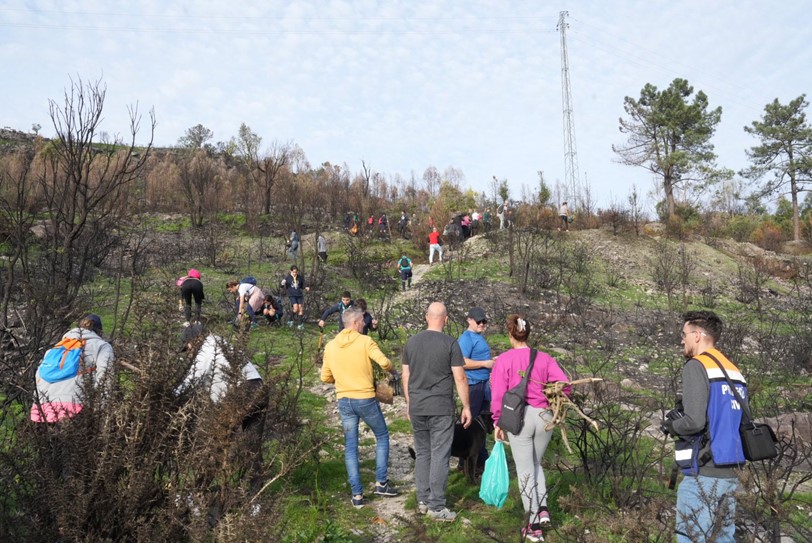
In an event that is repeated annually, Braga carried out the afforestation of around 3000 trees, including riparian and forestry, involving around 2300 people, belonging to 48 entities, including schools of different levels, companies, and associations, creating microforests in urban spaces and riparian galleries, as well as reforesting areas that had suffered forest fires last September. The municipality also offered honey plant seeds to schools as well as material for making seed grenades, having also organized a forest seed collection workshop.
For more information: here
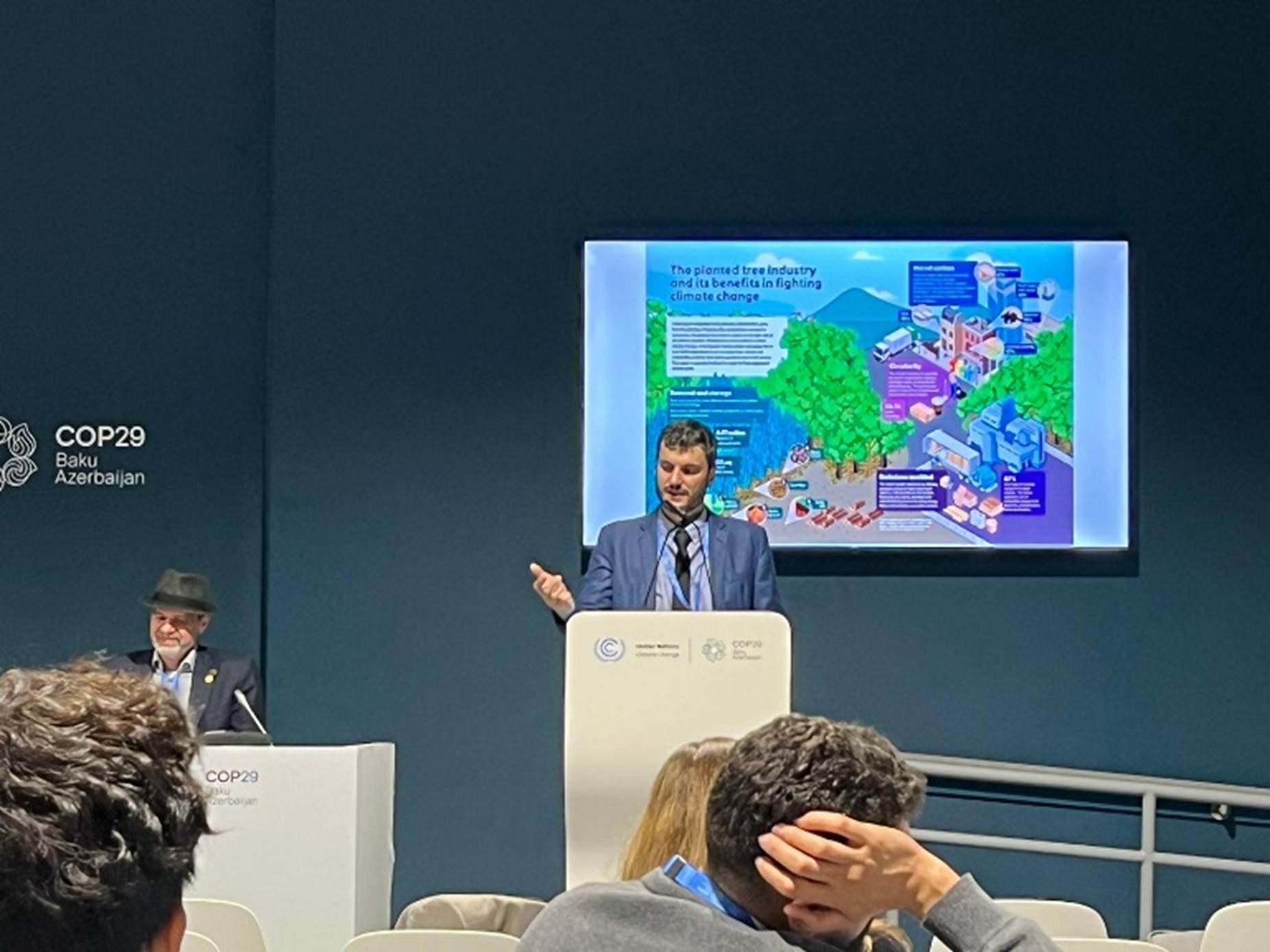
In the last two weeks, Ibá, represented by Adriano Scarpa, Climate Change Manager, was present at the Climate COP29, which took place in Baku, Azerbaijan. The association participated in the official UNFCCC Side Event, “Holistic forests – more than carbon sinks and avoided deforestation” alongside PEFC, FAO, AFPA, RECOFTC, ITTO, and ICM. The event sought to stimulate debates on how the experiences of the forestry sector can inspire other sectors to build resilience and promote sustainable actions. Cases were presented from different global regions, highlighting how the forestry sector contributes to sustainability, including global efforts to mitigate and adapt to climate change.
For more information: here
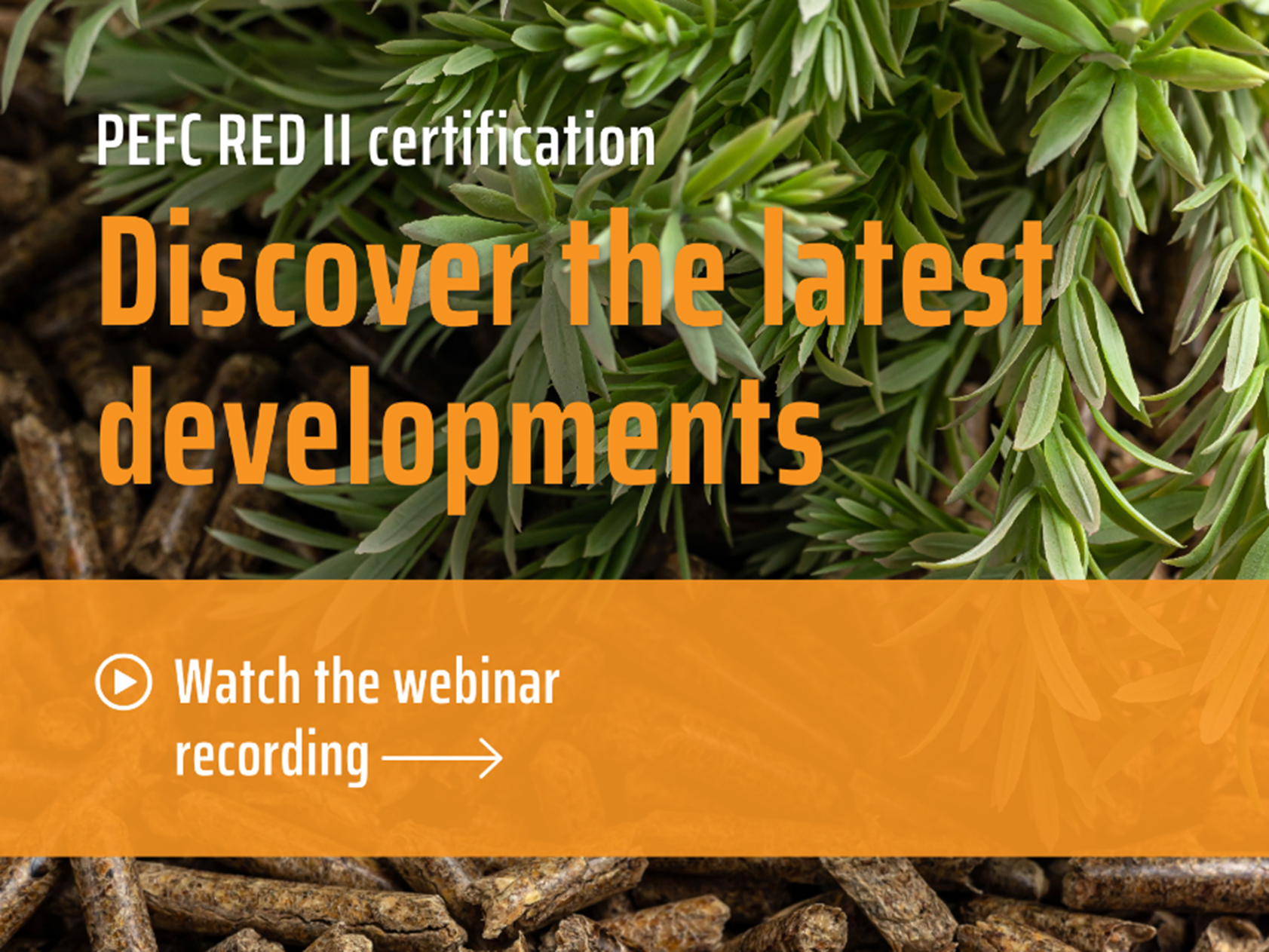
The PEFC RED II certification scheme was recognized by the European Commission. The new PEFC RED II standards are a significant move towards PEFC providing companies with a tool to demonstrate their compliance with the RED II sustainability and greenhouse gas saving criteria across the European Union (EU). You can watch the latest updates through the recorded webinar of 5 December.
For more information: here
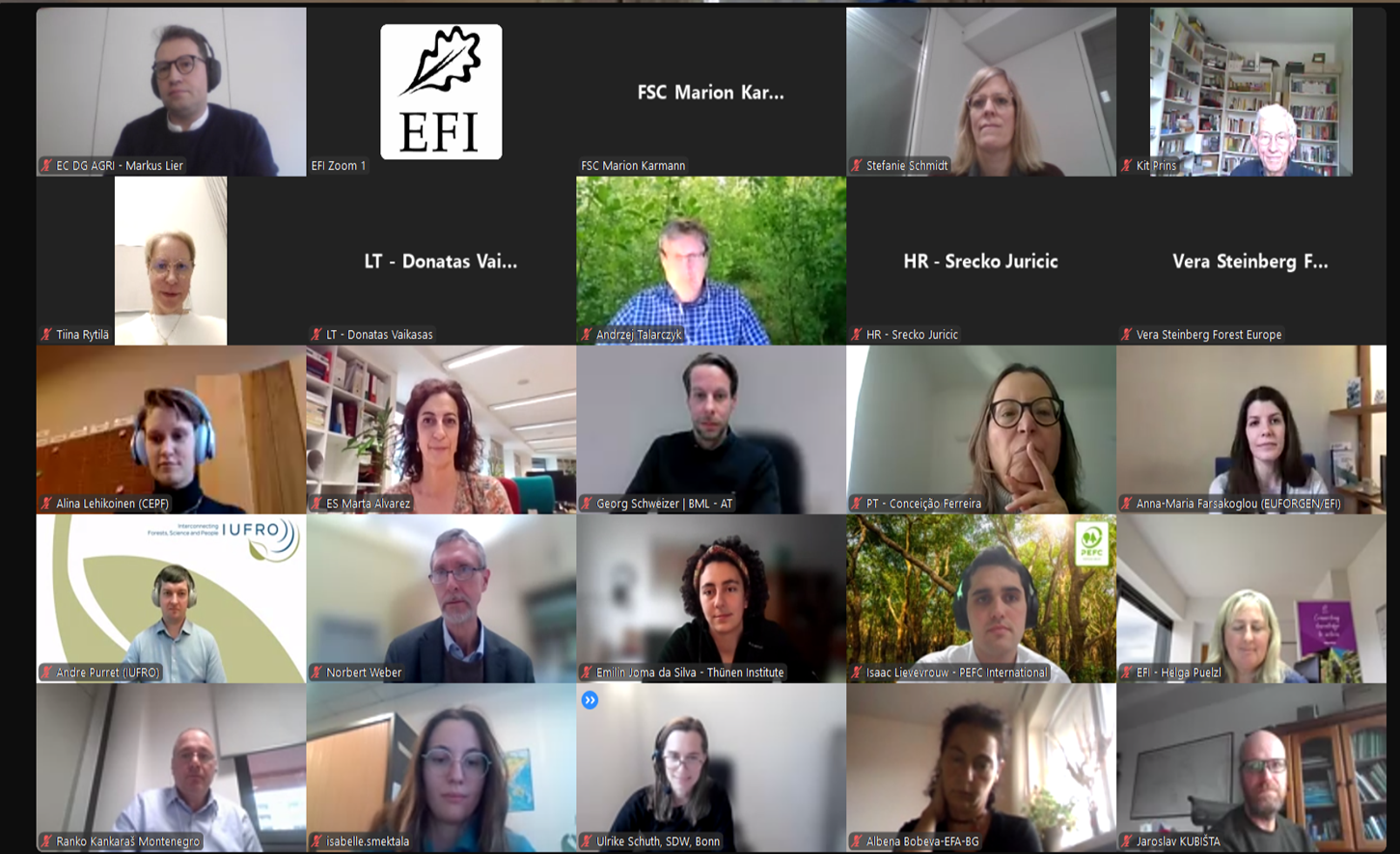
In Stockholm, during the hand-over process to Sweden, Bernhard Wolfslehner chaired the Think Tank meeting on 11 December with a focus on the publication “Are European Forests fit for a sustainable future? A short story about European forests”, a summary of the LUBo work on forest indicators. The meeting gave also an overview of the update of the indicator on Green Forest Jobs, the latest developments referring to forest issues at the European Commission, and a first presentation of the incoming new secretariat on the work on Sustainable Forest Management and the review of the indicators.
For more information: here
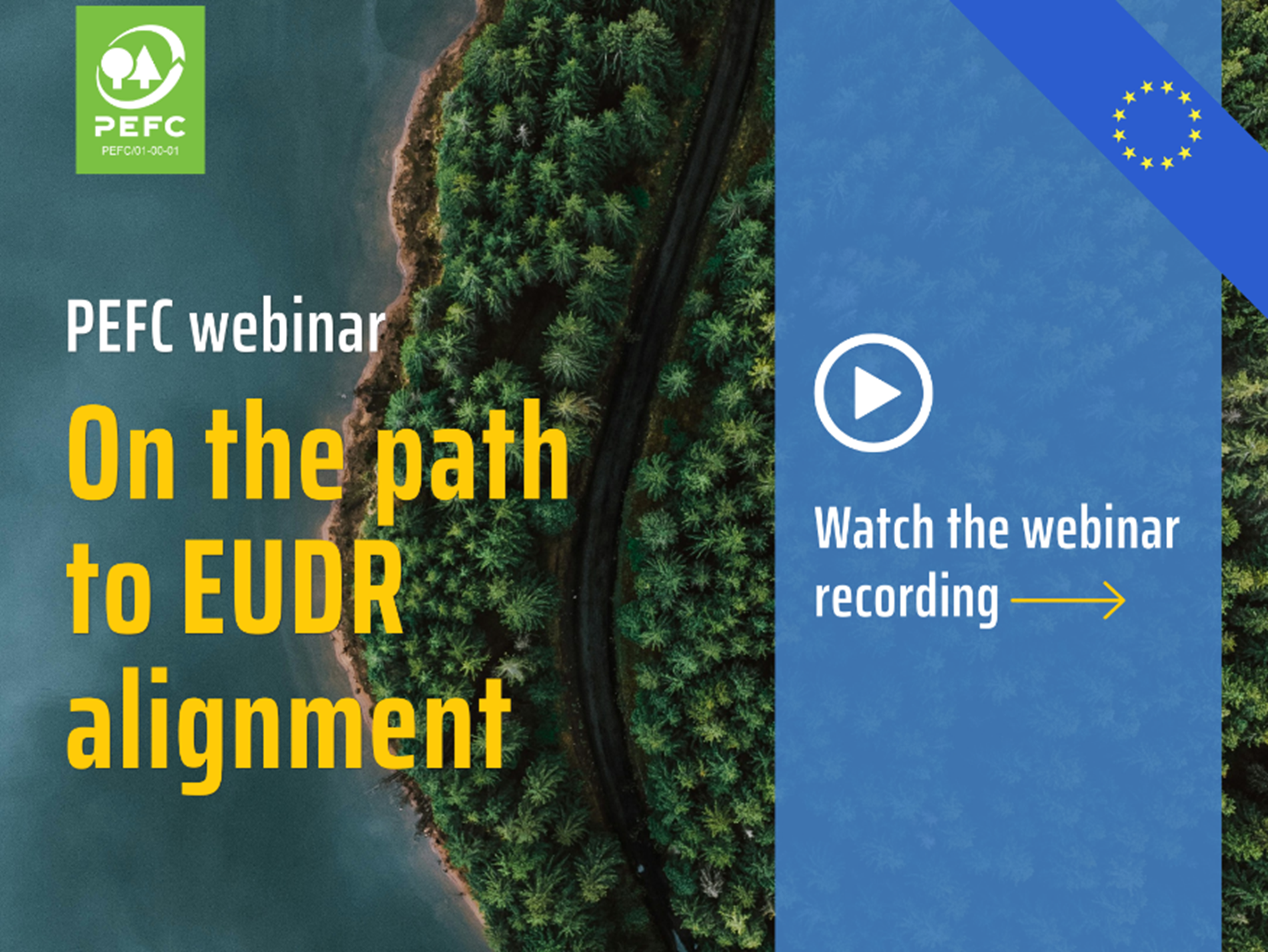
On 11 December, PEFC held its latest installment of the alignment to the EUDR webinar series as well as the rollout of the new PEFC EUDR compliance support solution. The webinar was recorded and touched on the alignment of our Sustainable Forest Management benchmark, the PEFC EUDR DDS module, partnerships with technology partners to ensure data management, and the latest news from the Commission.
For more information: here
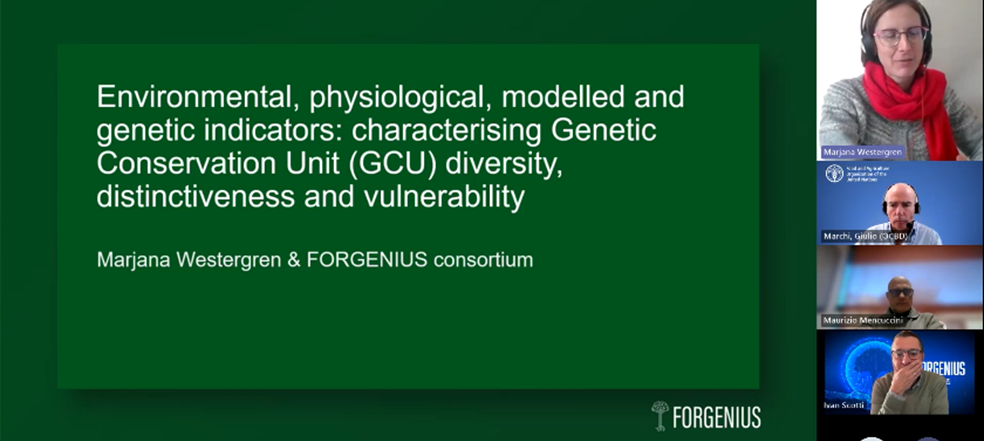
The fifth FORGENIUS Public Webinar in December 2024 showcased innovations in genetic conservation and environmental monitoring. Dr Marjana Westergren highlighted EUFGIS indices for Genetic Conservation Units, focusing on diversity, distinctiveness, and vulnerability using data from remote sensing and genomic studies. Giulio Marchi introduced EarthMap, a user-friendly geospatial tool powered by Google Earth Engine, enabling climate risk analysis and policy design with datasets on vegetation, temperature, and soil. These presentations underscored the sophisticated methodologies and interdisciplinary approaches driving the FORGENIUS project. The featured innovations pave the way for enhanced genetic conservation and climate monitoring tools.
For more information: here